The following awards recognize and encourage UWM faculty early in their careers whose research, scholarly, or creative activity have shown potential to achieve distinction in their academic disciplines or honor veteran researchers who have a long history of significant contributions to their fields of research.
Office of Research/UWM Foundation Research Awards
First awarded in 1979, the annual Office of Research /UWM Foundation Research Awards recognize and encourage UWM assistant and associate professors who have shown the potential to achieve distinction in their academic disciplines through scholarship, creative activity, and the dissemination of knowledge.
2022-2023 Recipients
Felipe Alberto, Dept. of Biological Sciences
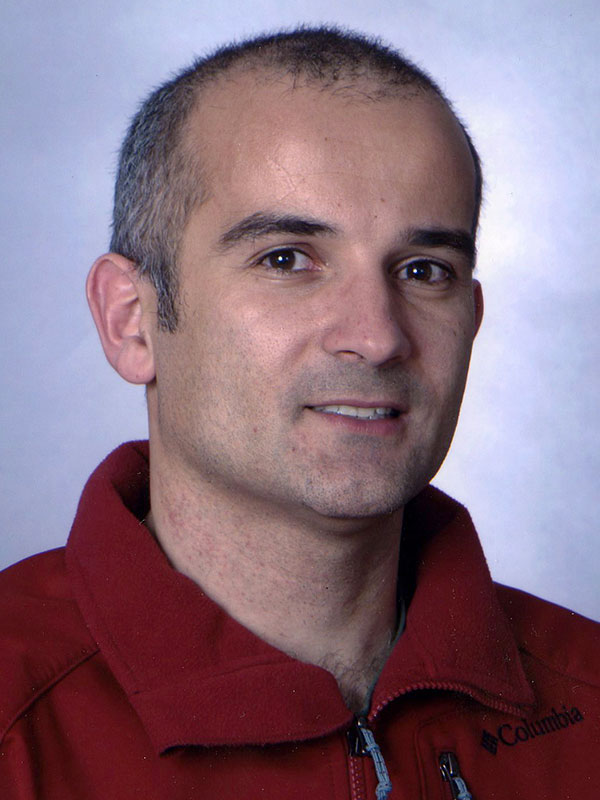 Dr. Felipe Alberto’s research focuses on the genetic structure and molecular genetics of kelp forests of the Pacific Coast, with an emphasis on the consequences of global change. His original research, utilizing genetic evolutionary markers and Geospatial Information Systems (GIS), has delivered insights into kelp population and growth.
Dr. Felipe Alberto’s research focuses on the genetic structure and molecular genetics of kelp forests of the Pacific Coast, with an emphasis on the consequences of global change. His original research, utilizing genetic evolutionary markers and Geospatial Information Systems (GIS), has delivered insights into kelp population and growth.
Alberto is the lead PI on nearly $4million in NSF and DOE grants studying the ecology and genetics of the ecosystem-building organisms giant kelp and bull kelp, and how they might best be used in biofuel production. His insights into the microevolutionary processes shaping these populations have been game changing in the field.
Kelsey Autin, Dept. of Educational Psychology
 Dr. Kelsey Autin is recognized not only as a highly productive member of her department with 45 peer-reviewed articles and five book chapters, but for her cutting-edge ideas and scholarship in her field of vocational psychology.
Dr. Kelsey Autin is recognized not only as a highly productive member of her department with 45 peer-reviewed articles and five book chapters, but for her cutting-edge ideas and scholarship in her field of vocational psychology.
Autin’s co-development of the ‘decent work’ theory (addressing work experiences of marginalized populations) has been described by her peers as “transform(ing) how vocational psychologists think about the institutional structures that constrain work development and experiences” and expect her early work to continue to be relevant for years to come.
Roshan D’Souza, Dept. of Mechanical Engineering
 Dr. Roshan D’Souza leads groundbreaking research to develop accurate and consistent non-invasive quantification of hemodynamic factors from blood flow imaging. His team employs cutting-edge technologies, such as physics-informed neural networks, to improve MRI-based blood flow images for clinical use. His research has the ultimate goal of deepening our understanding of hemodynamics and its impact on cardiovascular diseases.
Dr. Roshan D’Souza leads groundbreaking research to develop accurate and consistent non-invasive quantification of hemodynamic factors from blood flow imaging. His team employs cutting-edge technologies, such as physics-informed neural networks, to improve MRI-based blood flow images for clinical use. His research has the ultimate goal of deepening our understanding of hemodynamics and its impact on cardiovascular diseases.
Dr. D’Souza has risen to become one of the most well-funded professors in his college, bringing in $3.1M in federal funding, including the prestigious NSF CAREER award. His ability to identify new research areas, quickly acquire expertise, and establish collaborations with researchers at other institutions has been instrumental in making meaningful contributions to his field.
2021-2022 Recipients
Rachel Bloom-Pojar, Department of English
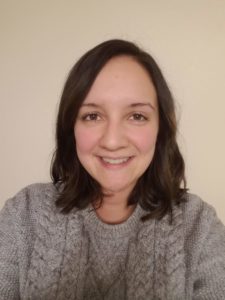 Associate Professor Rachel Bloom-Pojar is a rising star in her interdisciplinary field of translanguaging – the ability to move fluidly between languages – as exemplified by the acceptance of her book, Translanguaging Outside the Academy: Negotiating Rhetoric and Healthcare in the Spanish Caribbean, in a Studies in Writing and Rhetoric Series with only a 4% acceptance rate. Her work on translingualism – especially in the high-stakes field of healthcare – has been applauded by her peers as highly important and insightful contribution to the field of rhetoric of health and medicine (RHM).
Associate Professor Rachel Bloom-Pojar is a rising star in her interdisciplinary field of translanguaging – the ability to move fluidly between languages – as exemplified by the acceptance of her book, Translanguaging Outside the Academy: Negotiating Rhetoric and Healthcare in the Spanish Caribbean, in a Studies in Writing and Rhetoric Series with only a 4% acceptance rate. Her work on translingualism – especially in the high-stakes field of healthcare – has been applauded by her peers as highly important and insightful contribution to the field of rhetoric of health and medicine (RHM).
Thanks to her groundbreaking work, Bloom-Pojar is often referred to as one of the most important young scholars in her field, and further described as having the stature of a more senior scholar. Her consistent publications and presentations have earned her the respect of peers in the field as well as a recent promotion to Associate Professor. Her interdisciplinary work between the humanities and social sciences is broadly respected by peers and her work with UWM’s Center for 21st Century Studies’ Collaboratory Fellowship has led to even further interdisciplinary theory and publication.
Celeste Campos-Castillo, Department of Sociology
 Celeste Campos-Castillo is recognized as a prolific scholar on the sociology of trust and privacy in the medical informatics space. Campos-Castillo’s CV boasts dozens of journal papers, book chapters, and invited presentations since she began at UWM (and beforehand), including five refereed journal articles in 2021 alone.
Celeste Campos-Castillo is recognized as a prolific scholar on the sociology of trust and privacy in the medical informatics space. Campos-Castillo’s CV boasts dozens of journal papers, book chapters, and invited presentations since she began at UWM (and beforehand), including five refereed journal articles in 2021 alone.
Dr. Campos-Castillo’s research is distinguished as inherently anti-racist, as it implements anti-racist methods by engaging specifically with minority communities to both identify and implement theoretically and empirically based interventions designed to disrupt the reproduction of systematic discrimination and, in its place, promote health equity and inclusivity.
Additionally, Campos-Castillo is recognized for her extraordinary efforts in teaching and mentoring, having mentored and chaired or participated in dozens of graduate examination committees as well as taking a number of undergraduate students under her wing.
Anne Pycha, Department of Linguistics
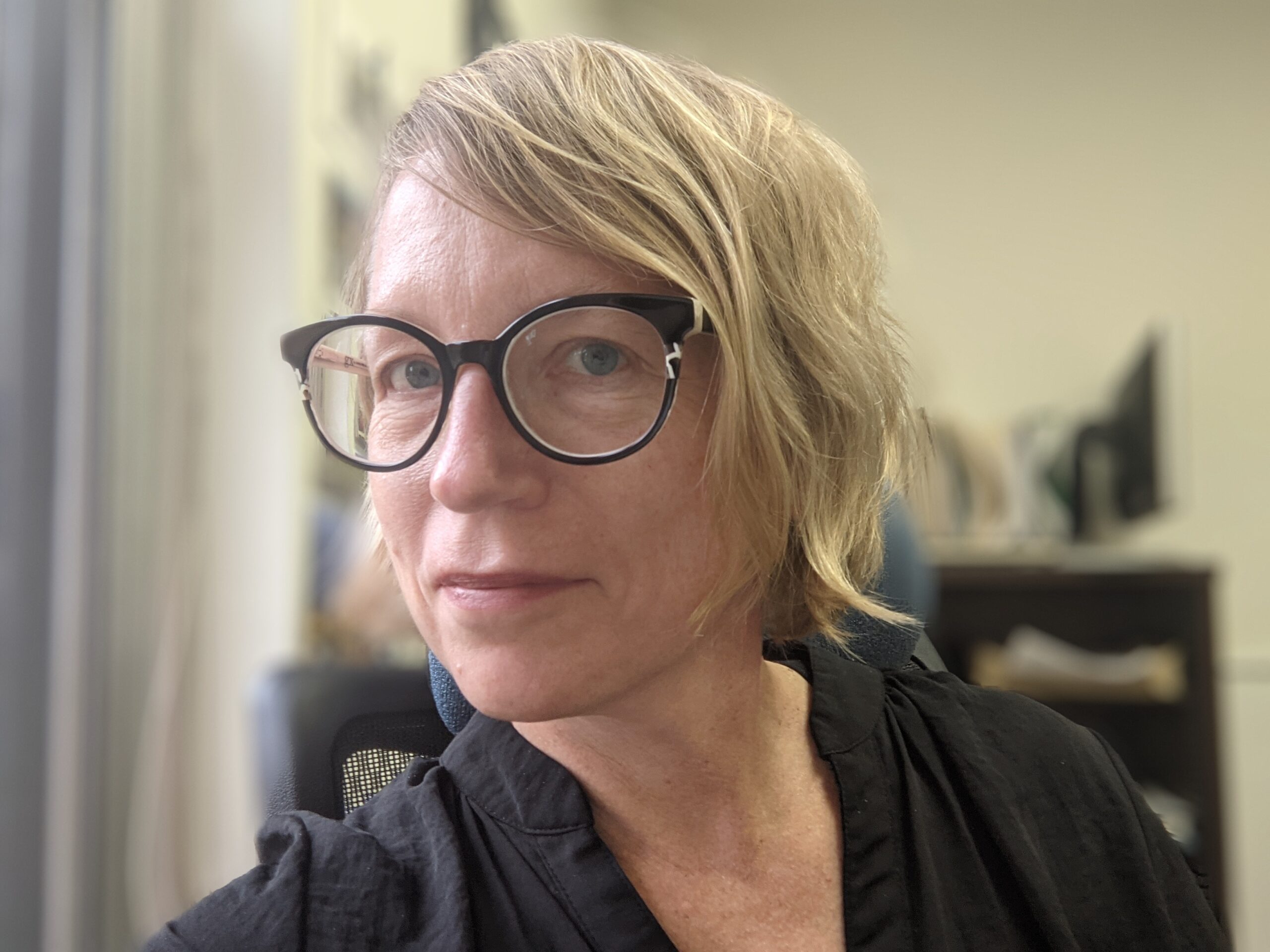 Associate Professor Anne Pycha brings both quantity and quality of publications not only in her own field of linguistics, but also branching out to the adjacent fields of cognitive neuroscience, mental lexicon, psychology, and sociology. Her work on COVID-related speech with a facemask was both timely and enlightening to the field at large.
Associate Professor Anne Pycha brings both quantity and quality of publications not only in her own field of linguistics, but also branching out to the adjacent fields of cognitive neuroscience, mental lexicon, psychology, and sociology. Her work on COVID-related speech with a facemask was both timely and enlightening to the field at large.
Dr. Pycha is recognized not just for her great volume of high-quality scholarship in linguistics but also for her dedication to dissemination of her science to the lay public with publications in both Scientific American and Scientific American Mind. She does service to her field by continuously publishing in broad and interdisciplinary subjects in the highest-rated journals, and by serving as a reviewer for many journals and symposia.
Additionally, Pycha has shown great departmental leadership in teaching and mentorship by offering flagship undergraduate and graduate courses and serving as advisor for many students.
Previous Recipients
2020-2021
Ira Driscoll, Department of Psychology
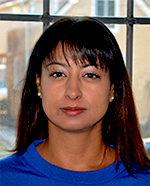 Ira Driscoll studies how changes in the brain can predict cognitive deficits and dementia, and the role for hormones and genetic background as modulators of age-related cognitive decline. Focusing on the function of the hippocampus and the nature of amnesia in aging and Alzheimer’s disease, she employs a multi-level investigative approach combining neurogenetics, neuroimaging, and cognitive tasks that allow for cross-species comparisons.
Ira Driscoll studies how changes in the brain can predict cognitive deficits and dementia, and the role for hormones and genetic background as modulators of age-related cognitive decline. Focusing on the function of the hippocampus and the nature of amnesia in aging and Alzheimer’s disease, she employs a multi-level investigative approach combining neurogenetics, neuroimaging, and cognitive tasks that allow for cross-species comparisons.
She has also done research suggesting that while obesity in middle age is associated with heightened risk for cognitive impairment in post-menopausal women, weight gain in elderly women may help preserve cognitive function.
A reviewer at Wake Forest University notes that “Dr. Driscoll has built a clear and impressive trajectory in her research aimed at understanding how Alzheimer’s disease develops.”
Recognition of her accomplishments includes the 2014 Alzheimer’s Association of Southeastern Wisconsin Investigator Award and the 2006 National Institute on Aging Fellows Award for Research.
Carolyn Eichner, Department of History
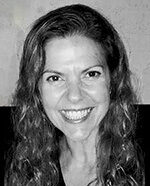 Carolyn Eichner is an internationally recognized scholar of French feminist history, particularly women and gender in 19th-century French political and social movements.
Carolyn Eichner is an internationally recognized scholar of French feminist history, particularly women and gender in 19th-century French political and social movements.
Eichner has published extensively on revolutionary women, feminism, imperialism, and gender in France and its empire. UWM History Department chair Joseph Rodriguez writes, “Her work is cutting edge—revealing the stories of French women who previously languished in historical obscurity. The freshness and originality of her work has attracted an international audience, and much of her work has been translated into French. Her first book is regularly used in women and gender and French history courses.”
Eichner’s French translation of her 2004 book on women in France’s revolutionary civil war, Surmounting the Barricades: Women in the Paris Commune, was a finalist for the prestigious Prix Augustin Thierry, given by the City of Paris to recognize historical work focusing on the period between Antiquity and the late 19th century. Her second and third books, The Paris Commune: A Brief History and Feminism’s Empire, are forthcoming in 2022.
Clark Evans, Department of Mathematics
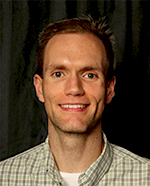 Clark Evans has expertise in weather analysis, forecasting, and numerical modeling, particularly their transition into extratropical storms when they reach higher latitudes. This transition phase is very challenging to predict, and can bring surprisingly severe weather. His 2017 review paper described the global climatology of extratropical transitions, their predictability and societal impacts, and provided recommendations for future research. The paper has been cited over 85 times in the academic literature.
Clark Evans has expertise in weather analysis, forecasting, and numerical modeling, particularly their transition into extratropical storms when they reach higher latitudes. This transition phase is very challenging to predict, and can bring surprisingly severe weather. His 2017 review paper described the global climatology of extratropical transitions, their predictability and societal impacts, and provided recommendations for future research. The paper has been cited over 85 times in the academic literature.
Clark’s award nominators cite his extensive record of conducting societally relevant, extramurally funded research on high-impact weather in collaboration with the National Weather Service (NWS) and its Storm Prediction Center, as well as the National Hurricane Center. He is a PI on $4 million in research grants.
At the American Meteorological Society, Evans is chair of both the Committee on Weather Analysis and Forecasting and the Annual Meeting Oversight Committee. He is also an editor of the Monthly Weather Review.
Nicolas Silvaggi, Department of Chemistry
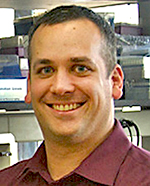 Nicholas Silvaggi is internationally recognized for fundamental contributions in enzymology and structural biology. His expert X-ray crystallography has helped determine molecular structures in complex biological systems—essential knowledge for characterizing binding sites for small molecules, which provides crucial insight into the rational design of potential drugs. His expertise contributed to the 2011 founding of the Milwaukee Institute for Drug Discovery at UWM.
Nicholas Silvaggi is internationally recognized for fundamental contributions in enzymology and structural biology. His expert X-ray crystallography has helped determine molecular structures in complex biological systems—essential knowledge for characterizing binding sites for small molecules, which provides crucial insight into the rational design of potential drugs. His expertise contributed to the 2011 founding of the Milwaukee Institute for Drug Discovery at UWM.
A highly sought-after collaborator at regional research institutions and at UWM, Silviaggi collaborated with UWM Professor David Frick to expand knowledge about the structure and possible therapeutic approaches to SARS-CoV-2, the virus that causes COVID-19.
Continuously funded by the NSF since 2012, Silvaggi has attracted three major research grants, been a co-PI on two NSF major instrument proposals and has received NIH funding.
Silvaggi has served on more than 30 PhD and five master’s committees—chairing five of them—and advised 41 undergraduates. He is also a mentor for the Milwaukee School of Engineering’s SMART team high-school outreach program.
2019-2020
Junjie Niu, associate professor, Department of Materials Science & Engineering
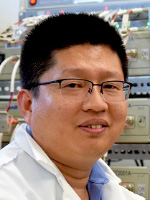 Junjie Niu is helping to create the next generation of fast-charging lithium-ion batteries. His novel electrode material allows rapid charging without damaging the battery and delivers far more energy than existing technology. In addition, the material would allow consumers to use their devices longer and drive electric cars much farther between charges.
Junjie Niu is helping to create the next generation of fast-charging lithium-ion batteries. His novel electrode material allows rapid charging without damaging the battery and delivers far more energy than existing technology. In addition, the material would allow consumers to use their devices longer and drive electric cars much farther between charges.
In 2019 he received the CEAS Outstanding Research Award in recognition of his water and energy research, which includes finding new ways to decontaminate drinking water and waste discharged from sewage lines, as well as creating self-cleaning coatings for a wide variety of surfaces, saving water and energy used in traditional cleaning methods.
Niu’s expertise in electrochemistry and materials and their applications in energy storage and water technology — as well as his strong academic background — led to his hiring at UWM in 2014 from a pool of hundreds of applicants.
Niu has published more than 80 papers in top journals, with more than 8,200 citations and an H-index of 41. He has been awarded one U.S. patent and more than four provisional patents. He earned the 2019 Best Presentation Award from the Materials Research Society and received a 2018 UWM Foundation Technology Licensing Award.
Michael Nosonovsky, associate professor, Department of Mechanical Engineering
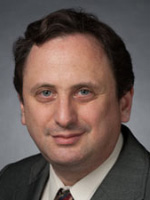 Michael Nosonovsky’s research deals with fundamental mechanisms and models of friction and the interaction of liquids with rough surfaces. These new models have led to improvements in water-repellent surfaces, ranging from concrete to coatings for the freshwater industry as well as a better understanding of natural phenomena, such as microdroplet clusters.
Michael Nosonovsky’s research deals with fundamental mechanisms and models of friction and the interaction of liquids with rough surfaces. These new models have led to improvements in water-repellent surfaces, ranging from concrete to coatings for the freshwater industry as well as a better understanding of natural phenomena, such as microdroplet clusters.
Nosonovsky is addressing problems in tribology — the science of friction, wear and lubrication — through biomimicry, which is the emulation of models, systems and elements of nature for the purpose of solving complex human problems. For example, scientists are studying sharkskin — which stays free of algae and barnacles while moving through the ocean — to develop similarly water resistant and self-cleaning hulls on ships.
His research has been published in prestigious journals such as Nature and the world’s oldest scientific research journal — Philosophical Transactions of the Royal Society — which published work by Isaac Newton, Charles Darwin, Benjamin Franklin and Stephen Hawking. Nosonovsky has authored or co-authored more than 100 papers and three books and been cited more than 8,500 times in scientific literature.
Ryan Shorey, assistant professor, Department of Psychology
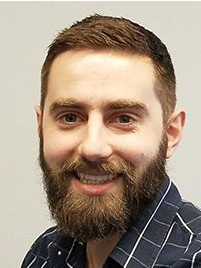 Ryan Shorey studies risk factors for, and consequences of, intimate partner violence, as well as substance use disorders and treatment. Integrating these two lines of research, he examines substance-related intimate partner violence and the effectiveness of substance use treatment in reducing the occurrence of intimate partner violence and sexual assault. His goal is to develop and implement prevention and intervention programs that reduce intimate partner violence, sexual assault and substance use disorders.
Ryan Shorey studies risk factors for, and consequences of, intimate partner violence, as well as substance use disorders and treatment. Integrating these two lines of research, he examines substance-related intimate partner violence and the effectiveness of substance use treatment in reducing the occurrence of intimate partner violence and sexual assault. His goal is to develop and implement prevention and intervention programs that reduce intimate partner violence, sexual assault and substance use disorders.
Accolades for Shorey from his peers in his field include “the most talented researcher of his generation,” “an extraordinary scientist” and an early-career researcher possessing “absolutely astonishing” and “truly unparalleled” productivity. Shorey has also been praised for his interest in treating sexual minority young adults, an extremely vulnerable and understudied population.
Shorey has published 166 peer-reviewed articles, including 80 as first author. Since 2014, he has been principal investigator on seven grants, many R01 or R21, totaling more than $3.7 million. Since joining UWM in 2018, he has established the Substance Use and Relationship Factors Lab, which includes two PhD student members who hold competitive fellowships from the UWM Graduate School.
2018-2019
Philip Chang, Associate Professor, Physics
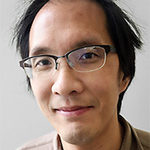 When Philip Chang arrived at UWM in 2011, he was already a highly respected researcher in the astrophysics of compact objects, which include white dwarfs, neutron stars and black holes.
When Philip Chang arrived at UWM in 2011, he was already a highly respected researcher in the astrophysics of compact objects, which include white dwarfs, neutron stars and black holes.
Physics Department Chair Prasenjit Guptasarma credits Chang for “deepen(ing) our understanding of the most extreme astrophysical objects in the Universe.”
Chang has developed a unique set of numerical tools to model these systems and interpret the massive amounts of information acquired by observers.
Guptasarma cites an ambitious project Chang initiated with numerical relativity collaborators to develop a unified approach to modeling objects with strong gravitational fields and complicated microphysics. “There is a real need for a tool that does exactly this,” Guptasarma notes, in the wake of the first observation of the merger of two neutron stars through gravitational and electromagnetic waves in 2017.
While at UWM, Chang has been funded continuously by the National Science Foundation and NASA, including a prestigious NSF Faculty Early Career Development award in 2013. During that time, he has published 33 refereed papers and attracted more than $1.1 million in external funding.
Professor Norman Murray at the Canadian Institute for Theoretical Astrophysics writes of Chang, “He is clearly on a par with other well-known theorists of his generation…at the forefront of efforts to model mergers of neutron star and neutron star-black hole binaries, advancing the already strong gravitational wave effort at UWM.”
Amy Kalkbrenner, Associate Professor, Public Health
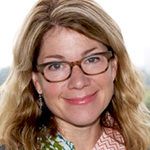 Amy Kalkbrenner is an environmental epidemiologist who studies how exposures to environmental pollutants in pregnancy or the first years of life may harm development, such as leading to a neurodevelopmental disorder like autism.
Amy Kalkbrenner is an environmental epidemiologist who studies how exposures to environmental pollutants in pregnancy or the first years of life may harm development, such as leading to a neurodevelopmental disorder like autism.
Her current projects address the thousands of pollutants in air—volatile organic compounds such as benzene, metals such as lead and mercury, and particles—from sources like traffic and power plants. Kalkbrenner also works to improve the research methods in such studies, by examining autism together with problems like ADHD and cognitive abilities, and by uncovering short windows of development that may be periods of increased risk to toxicant exposures. Ultimately, she positions her work to inform the policies and control technologies to support optimal health—of body and mind.
Joseph Braun, associate professor at Brown School of Public Health, is a frequent collaborator with Kalkbrenner, a former classmate at UNC-Chapel Hill, and a UWM alum. “She was well-known for questioning key assumptions held in our field,” he recalls, “and always thought carefully and deliberately about the problems we were addressing. She was never one to shy away from a problem because it was difficult to address.”
Kalkbrenner was the first epidemiologist hired at the Zilber School of Public Health in 2011. ZSPH colleague, Associate Professor Michael Laiosa, writes that “[S]he was instrumental in developing curricula, policies and procedures in the first years of the school that have helped our school gain national accreditation.”
Nancy Rolock, Associate Professor, Social Work
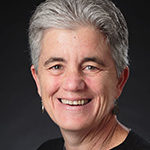 A UWM faculty member from 2013 to the summer of 2019, Nancy Rolock is considered by many peers to be the leading scholar in the adoption and guardianship of foster children. She has played a leadership role early in her academic career in the development of a rigorous body of research evidence on the measurement of guardianship, adoption, kinship, and foster care, with a focus on the determinants of child well-being.
A UWM faculty member from 2013 to the summer of 2019, Nancy Rolock is considered by many peers to be the leading scholar in the adoption and guardianship of foster children. She has played a leadership role early in her academic career in the development of a rigorous body of research evidence on the measurement of guardianship, adoption, kinship, and foster care, with a focus on the determinants of child well-being.
Rolock is a former student of and frequent collaborator with Mark Testa, now a distinguished professor at the University of North Carolina. He writes, “Her work exemplifies a new breed of social work researcher who is able to apply rigorous research methods to the solution of practical social work concerns and problems.”
Her interest in finding solutions to improve the lives of at-risk children began in the mid-1980s when she worked with the Peace Corps in Mauritania, West Africa.
Her upcoming book, Introduction to Child Welfare: Building a Culturally Responsive, Multisystemic, Evidence-Based Approach, co-edited with leading child welfare scholars, illuminates the definition of child welfare services and explores structural issues which assist or impede the success of youth in the child welfare system.
Since 2009, Rolock has been PI or co-PI on grants totaling move than $28.5 million, including nearly $2 million in funding to UWM.
2017-2018
Julie Bowles, Assistant Professor, Geosciences
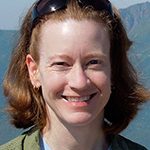 To conduct her research, Julie Bowles has participated shipboard on multiple ocean drilling projects that aim to look deeper into the Earth’s crust.
To conduct her research, Julie Bowles has participated shipboard on multiple ocean drilling projects that aim to look deeper into the Earth’s crust.
Bowles is interested in variations in the strength of Earth’s magnetic field throughout its history, a field called paleo-intensity, and also the “rock records” of field variations, called paleomagnetism. Drilling provides insight into short- and long-term magnetic field behavior, which is used to determine the evolution of Earth’s core.
Whether on land or water, she is making new discoveries that have profound implications for paleo-intensity.
Bowles’ record of research and her ability to obtain funding are very impressive for a person at her level, say her nominators. In the last 10 years, Bowles has amassed $2.8 million in research funds from the National Science Foundation, Oceanographic Institutions/U.S. Science Support Program and NASA. “Her future is certainly bright, as she has considerable ongoing research, partners with some of the best and brightest in our field and works on difficult but rewarding topics,” says Laurie Brown, emerita professor of geophysics at the University of Massachusetts, Amherst.
Winson Chu, Associate Professor, History
 Winson Chu’s research lies at the intersection of German and Polish history and cultures during the 19thand 20thcenturies,with an emphasis on multicultural populations, ethnic cleansing and diasporas.
Winson Chu’s research lies at the intersection of German and Polish history and cultures during the 19thand 20thcenturies,with an emphasis on multicultural populations, ethnic cleansing and diasporas.
His 2012 book, The German Minority in Interwar Poland, examines three historically distinct German communities living in Poland who were brought together only by the revolutionary changes of 1918-1919 that ended multinational empires and re-drew the borders of European nations.
It discusses intra-ethnic rivalry, national identity and citizenship under the pressure of international conflicts.
The relevance of his work in today’s world of mobile and refugee populations, ethnic nationalism and minority conflicts has already made him a much-invited speaker.
One nominator, Margaret Lavinia Anderson, emerita professor at UC-Berkeley, describes Chu as a scholar of enviable range with an eye for paradoxes and a rising profile among international scholars.
“Winson is on the verge of becoming one of the leading historians of his generation,” she says.
Deborah Hannula, Associate Professor, Psychology
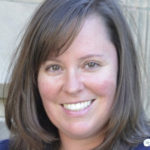 Cognitive neuroscientist Deborah Hannula is an exceptional, independent scholar whose innovative research program has made important strides in understanding the nature of memory. Hannula’s main interest involves episodic memory, or individuals’ ability to retain information about an event and the spatio-temporal context in which the event occurred.
Cognitive neuroscientist Deborah Hannula is an exceptional, independent scholar whose innovative research program has made important strides in understanding the nature of memory. Hannula’s main interest involves episodic memory, or individuals’ ability to retain information about an event and the spatio-temporal context in which the event occurred.
Episodic memory is traditionally considered to be conscious recollection, but Hannula has demonstrated that obligatory eye movements can reveal unconscious memories activated in the brain’s hippocampus.
The work has been supported by a prestigious Early Career Award from the National Science Foundation, the first awarded to a UWM psychology faculty member. Hannula’s research papers have been widely cited by other scientists.
Simone Ghetti, a professor of psychology at UC-Davis, notes, “Her research is always carefully designed and beautifully described, and some of her manuscripts are on the road to become classics in cognitive neuroscience.”
Hannula has devoted much time to community outreach events like the UWM Science Bag shows and Upward Bound Math & Science. She also has been featured in media outlets such as Scientific American, Science Daily and Science Now.
David Kaplan, Associate Professor, Physics
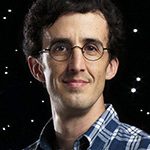 David Kaplan is a leader in several distinct areas of astrophysics and has been continuously funded by the National Science Foundation since 2010. “Kaplan is a gem that any top-tier university would like to have as a member of its faculty,” says nominator Jim Cordes of Cornell University. “I would put him in the same league (but different era) as Shri Kularni, his PhD advisor at Caltech.”
David Kaplan is a leader in several distinct areas of astrophysics and has been continuously funded by the National Science Foundation since 2010. “Kaplan is a gem that any top-tier university would like to have as a member of its faculty,” says nominator Jim Cordes of Cornell University. “I would put him in the same league (but different era) as Shri Kularni, his PhD advisor at Caltech.”
Bryan Gaensler of the University of Toronto says, “Kaplan has distinguished himself by becoming a key global leader in the burgeoning fields of time-domain astronomy and multi-messenger astrophysics. He is both the glue that has assembled new teams to pursue new science, and also the individual driving force that has made many recent discoveries.”
An example of this is the findings from a paper published in Science in 2017 that reported on multi-wavelength, electromagnetic observations of the explosion that followed the merger of two neutron stars. The work suggests that most of the gold and platinum in the universe originated in neutron-star mergers.
John Reuter, Assistant Professor, Political Science
 John Reuter is an example of an early-career scholar making his mark on his field. He uses a range of techniques to ask important questions about the institutions of authoritarian government.
John Reuter is an example of an early-career scholar making his mark on his field. He uses a range of techniques to ask important questions about the institutions of authoritarian government.
Much of the existing knowledge on these governments comes from descriptive single-nation or single-leader case studies. Reuter uses surveys, causal process tracing methods and cross-national empirical tests to explore hypotheses about how authoritarian regimes work to retain their power. His book, The Origins of Dominant Parties, is a major contribution to the literature on both authoritarian regimes and Russian politics. It asks and answers the question of why dominant parties emerge in some times and places but not in others.
“Reuter is one of the most promising young scholars conducting research on the institutions of authoritarian government and among the very top scholars in his cohort working on Russian politics,” says Daniel Treisman of UCLA. Joseph Wright at Penn State University adds, “By one metric, Google Scholar, Reuter’s publications citation count puts him among the most highly cited scholars in this field at this stage of his career.”
2016-2017
Miren Boehm, Associate Professor, Philosophy
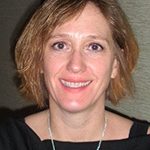 Miren Boehm is a leading voice in an emerging reinterpretation of 18th-century Scottish philosopher David Hume—viewed by many as the most important philosopher to have written in the English language. Hume is perhaps best known today for his highly influential system of philosophical empiricism, skepticism and naturalism.
Miren Boehm is a leading voice in an emerging reinterpretation of 18th-century Scottish philosopher David Hume—viewed by many as the most important philosopher to have written in the English language. Hume is perhaps best known today for his highly influential system of philosophical empiricism, skepticism and naturalism.
Boehm examines Hume’s views on metaphysics and epistemology, focusing primarily on his masterpiece, A Treatise of Human Nature, published in 1739. While the treatise has traditionally been interpreted as a set of powerful skeptical challenges to any philosophical or scientific system, Boehm has delved deeply into the text, revealing within long-neglected passages a systematic, constructive foundation for the sciences—ranging from “Logic, Morals, Criticism, and Politics” to “Mathematics, Natural Philosophy, and Natural Theology.” As part of this “foundational project,” Boehm argues, Hume challenges Isaac Newton’s conception of absolute space and time, introduced 52 years earlier.
UWM Associate Professor of Philosophy and department chair Richard Tierney points out that “her work has already achieved a remarkable degree of recognition and has begun to exert a significant amount of influence for someone so early in her career.”
Harvey Bootsma, Associate Professor, Freshwater Sciences
 Harvey Bootsma has helped reveal how fundamental properties of lakes—size, geologic setting, biotic composition and climate—influence and interact with the surrounding ecosystem. He has studied nutrient cycles and the impact on aquatic ecosystems of external stressors, such as invasive species, climate variability and land use.
Harvey Bootsma has helped reveal how fundamental properties of lakes—size, geologic setting, biotic composition and climate—influence and interact with the surrounding ecosystem. He has studied nutrient cycles and the impact on aquatic ecosystems of external stressors, such as invasive species, climate variability and land use.
Freshwater Sciences Dean J. Val Klump writes, “Harvey’s work has untangled some of the unpredictable ripple effects of the dreissenid mussel invasion that have completely reengineered the lower Great Lakes, and have permanently altered the Lake Michigan ecosystem.” The new paradigm that Bootsma’s lab has helped elucidate is helping guide policy and management decisions of fisheries and natural resource managers throughout the Great Lakes region.
Bootsma’s work has had a similar impact in Africa, where his studies of tropical Lake Malawi, one of the African Great Lakes, date back to his graduate work in the late ‘80s. His exploration of nutrient cycling, water quality and sanitation issues has led to partnerships with local governments, as well as environmental and economic improvements.
Freshwater Sciences Assistant Dean for Advancement Eric Leaf writes, “Dr. Bootsma’s exceptional research is helping to produce tomorrow’s Great Lakes and water experts, while also having direct and significant impact on the community.”
Dawn Erb, Associate Professor, Physics
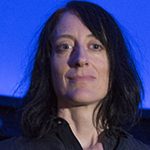 Dawn Erb is internationally recognized as a leader in the field of galaxy formation and evolution.
Dawn Erb is internationally recognized as a leader in the field of galaxy formation and evolution.
Calling her “one of the emerging stars of U.S. astronomy,” Max Pettini of the University of Cambridge points to two “landmark” papers by Erb. The first was a study of the composition of galaxies in the distant, early universe, which has shed light on the processes that shape galaxies and their synthesis of heavy elements from hydrogen and helium.
The second identified galaxies thought to be analogous to far younger primordial galaxies believed to be responsible for the “phase transition,” in which neutral intergalactic gas became a plasma of charged particles. These ancient galaxies are too far to be seen in detail, but the analogs could offer insights into a key period in the evolution of the universe.
Erb’s thesis adviser, Charles Steidel, Lee A. DuBridge Professor of Astronomy at the California Institute of Technology, notes that “each one of her papers is a major piece of work that sets the standard for the field.”
Erb has received a National Science Foundation Early Career Grant and multiple highly competitive Hubble Space Telescope observing grants.
View Older Awards
2015-2016
Han Joo Lee, Associate Professor, Psychology
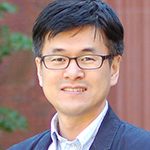 Han Joo Lee examines the underlying cognitive processes of anxiety and obsessive-compulsive conditions using experimental psychopathology approaches.
Han Joo Lee examines the underlying cognitive processes of anxiety and obsessive-compulsive conditions using experimental psychopathology approaches.
In both his basic research and clinical work, he has identified novel research questions that have advanced the field and have the potential to help many people suffering from anxiety and obsessive-compulsive conditions. He has found that socially anxious people can effectively reduce the symptoms of anxiety depending on how they respond to certain negative facial expressions.
“This is a truly groundbreaking finding that should prompt the field to more broadly consider attentional problems in anxiety and how to treat them,” writes W. Hobart Davies, Psychology Department chair. “Dr. Lee is one of very few researchers investigating this important attentional avoidance process in anxiety.”
Lee has also developed a computerized intervention for individuals with OCD-spectrum problems, and it’s designed to improve the ability to stop unwanted or problematic behaviors. Lee’s work in this area earned him a UWM Research Foundation Catalyst Grant in 2013.
Lee has published nearly 50 peer-reviewed papers, including 33 since he arrived at UWM in 2009. Also since 2009, he has been awarded seven grants as PI or Co-PI, totaling $978,431, including a recent National Institute of Health R21 Research Grant Award to continue his work on computer-based interventions for OCD and hair-pulling.
Blain Neufeld, Associate Professor, Philosophy
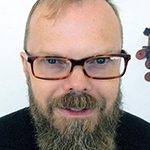 Blain Neufeld is providing a renewed and expansive vision of political liberalism—a prominent theory of justice and legitimacy founded on ideals of liberty and equality. He challenges the conventional notion that its founding principle is toleration, arguing instead that political liberalism is founded on a principle of civic respect. He expands political liberalism beyond its traditional limits through his scholarship on the family and gender equality.
Blain Neufeld is providing a renewed and expansive vision of political liberalism—a prominent theory of justice and legitimacy founded on ideals of liberty and equality. He challenges the conventional notion that its founding principle is toleration, arguing instead that political liberalism is founded on a principle of civic respect. He expands political liberalism beyond its traditional limits through his scholarship on the family and gender equality.
With his deep understanding of public policy, Neufeld illustrates the real-world relevance of political liberalism in areas such as civic education and foreign policy.
UWM Philosophy Department chair William Bristow writes that “Neufeld’s outstanding work on civic respect among citizens in a liberal society reorients our conception of the foundations of political liberalism.”
Simone Chambers, professor of political science at the University of California-Irvine, said that Neufeld’s forthcoming book on civic education will be “a major contribution to contemporary analytic political theory.”
Neufeld is a Center for International Education Global Studies Fellow this year, and a past fellow of the Center for 21st Century Studies. His past awards include a Spencer Foundation research grant, a Graduate School Research Committee Award, and multiple Faculty of Arts & Humanities Travel Awards.
Margaret Noodin, Director, Quinney Institute
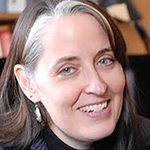 Margaret Noodin studies indigenous and American Indian literature, culture and sociolinguistics, and she has worked tirelessly to preserve the ancient language of the Anishinaabe, a group of culturally related peoples of Canada and the United States that includes the Odawa, Potawatomi and Ojibwe.
Margaret Noodin studies indigenous and American Indian literature, culture and sociolinguistics, and she has worked tirelessly to preserve the ancient language of the Anishinaabe, a group of culturally related peoples of Canada and the United States that includes the Odawa, Potawatomi and Ojibwe.
Her highly regarded 2014 book, Bawaajimo: A Dialect of Dreams in Anishinaabe Language and Literature, is an analysis of four Anishinaabe authors that combines literary criticism, sociolinguistics, native studies, and poetics to introduce what Noodin calls an Anishinaabe way of reading. Her original works include “Weweni: Poems in Anishinaabemowin and English,” which features poems she wrote in the Anishinaabe language and their English translations.
“Very few scholars in the U.S. and Canada have both the language skills and the literary training to undertake such a project,” said Jill Doerfler, who directs American Indian Studies at the University of Minnesota-Duluth.
In addition to serving as the director of the Electa Quinney Institute, Noodin is also president of the Studies in American Indian Literatures Association and vice president of the MLA Division of Language Change.
Ramin Pashaie, Associate Professor, Electrical Engineering
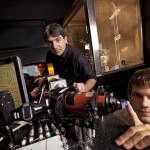 A core member of the bioengineering-oriented faculty at UWM, Pashaie works on hybrid instrumentation to study brain-blood communication. He received a federal grant in 2015 to develop technology to help researchers understand how information processing and blood flow are intertwined. Learning details of such processes is the first step to understanding the circuitry of diseases such as Alzheimer’s or atherosclerosis.
A core member of the bioengineering-oriented faculty at UWM, Pashaie works on hybrid instrumentation to study brain-blood communication. He received a federal grant in 2015 to develop technology to help researchers understand how information processing and blood flow are intertwined. Learning details of such processes is the first step to understanding the circuitry of diseases such as Alzheimer’s or atherosclerosis.
Pashaie is a collaborative researcher who has initiated research projects with other UWM departments as well as UW-Madison and the Medical College of Wisconsin. His collaborative projects with local industry include development of a new generation of multiphoton microscopy systems and building high-throughput DNA sequencing instrumentation.
Justin Williams, Vilas Distinguished Achievement professor at UW-Madison, notes the high regard in the field for Pashaie’s research program and calls him “the consummate academician, thinking about big problems with deep intellectual rigor,” and admires his “very ‘can-do’ attitude.”
Pashaie has published 26 papers in high-quality journals of bioengineering and bio-optics, including Nature Communications, Nature Neuroscience, and the Journal of Cerebral Blood Flow & Metabolism.
Chia Vang, Associate Professor, History
 Chia Youyee Vang is a leading historical scholar on the Hmong diaspora, especially in the Midwestern and U.S. context. Her early research explored the region near her home and led to her 2008 book, Hmong in Minnesota. Her 2010 book, Hmong America: Reconstructing Community in Diaspora, which explores a broader population, is highly acclaimed. Hmong Studies Journal editor Mark Pfeifer calls the book “a seminal monograph within Hmong American studies and the most comprehensive account to date of contemporary Hmong American history within any academic work.”
Chia Youyee Vang is a leading historical scholar on the Hmong diaspora, especially in the Midwestern and U.S. context. Her early research explored the region near her home and led to her 2008 book, Hmong in Minnesota. Her 2010 book, Hmong America: Reconstructing Community in Diaspora, which explores a broader population, is highly acclaimed. Hmong Studies Journal editor Mark Pfeifer calls the book “a seminal monograph within Hmong American studies and the most comprehensive account to date of contemporary Hmong American history within any academic work.”
Former research collaborator Monica Trieu, an assistant professor at Purdue University, writes that Vang “taught me that one could simultaneously be a productive academic, while also giving back to the community,” and admires “the genuine care and commitment that she possesses for her research subjects/community.”
A Hmong American who arrived in the United States from Laos in 1980 at age 9, Vang joined UWM in 2006 as an instructor in the UWM Department of History while finishing her doctorate. She joined the faculty in 2006 and earned tenure in 2011.
Dazhong Zhao, Associate Professor, Biological Sciences
 Dazhong (Dave) Zhao studies plant development—specifically microRNAs, an abundant but fairly recently discovered class of small RNAs that regulate gene expression. Zhao is exploring the roles microRNAs play in plant cell determination and, more recently, the hormonal signaling that stimulates plant reproduction.
Dazhong (Dave) Zhao studies plant development—specifically microRNAs, an abundant but fairly recently discovered class of small RNAs that regulate gene expression. Zhao is exploring the roles microRNAs play in plant cell determination and, more recently, the hormonal signaling that stimulates plant reproduction.
“Monumental” is how Keiko Torii, distinguished professor of biology at the University of Washington, describes Zhao’s 2008 article published in the Proceedings of the National Academy of Sciences.
His recent work on hormonal signaling and plant reproduction “will have broad impact, not only among people who study plants, but also on how these mechanisms operate in animals, including humans,” said R. David Heathcote, chair of UWM’s Biological Sciences Department.
Zhao also conducts applied research, evidenced by his 2016 Catalyst Grant from the Bradley Foundation, whose awards support work in areas at UWM deemed to have strong commercialization potential. The project’s goal is to create switchgrass that can turn its fertility on or off, helping in the production of biomass without posing a risk to natural crops.
Zhao was the 2007 Milwaukee recipient of the Shaw Scientist Award from the Greater Milwaukee Foundation.
2014-2015
Jason Puskar, Associate Professor, English
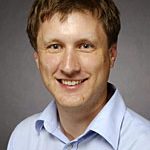 It didn’t take long for Jason Puskar to make an impression at UWM. Among some 300 applicants for an assistant professorship in English in 2005, “He stood out from the beginning as simply the best,” wrote Jane Gallop, distinguished professor of English and chair of the search committee. “His was hands-down the best writing sample of the sixty we read.”
It didn’t take long for Jason Puskar to make an impression at UWM. Among some 300 applicants for an assistant professorship in English in 2005, “He stood out from the beginning as simply the best,” wrote Jane Gallop, distinguished professor of English and chair of the search committee. “His was hands-down the best writing sample of the sixty we read.”
His first book, Accident Society: Fiction, Collectivity, and the Production of Chance, published by Stanford University Press in 2012, explores how the effects of chance, accidents, and the upheavals of modern life in the late nineteenth and early 20th centuries were represented in realist American fiction. Puskar argues that literature at this time actively produced chance by categorizing injuries and losses as blameless accidents, and that doing so helped Americans develop new forms of social solidarity.
Of his forthcoming book, which explores the technology of the push button in modern American culture, Gallop wrote, “I was pretty much blown away by its originality, scholarly ambition, and sheer brilliance. The first book was very good; the second will be phenomenal.”
Work on his first book was supported by a Research Growth Initiative grant, his second by a 2014-2015 fellowship at the Center for 21st Century Studies.
He is also a popular choice with students. Last spring he chaired four dissertation committees, served on seven others and chaired two graduate-level project committees.
Rafael Rodriguez Sevilla, Associate Professor, Biological Sciences
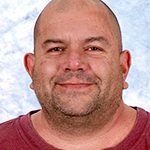 Rodríguez Sevilla has achieved national and international prominence for his work on the evolution of behavior, specifically sexual selection and speciation in insects.
Rodríguez Sevilla has achieved national and international prominence for his work on the evolution of behavior, specifically sexual selection and speciation in insects.
His department chair, Professor R. David Heathcote, says Rodríguez Sevilla’s work is “changing the way evolutionary biologists think about population divergence and the process of speciation.” He has adapted Doppler-laser vibrometry—a technique for detecting vibrations on surfaces—to measure in detail the vibrational signals of various kinds of male insects, and how females interact with them.
Rodríguez Sevilla’s work has also revealed that social and rearing environments can influence the expression of insect genotypes.
Michael Greenfield, now a professor at Université François Rabelais de Tours, directed Rodriguez Sevilla’s dissertation, a National Science Foundation-funded project that he finished in 2002 at the University of Kansas.
“Without question, he is the most intellectually gifted of the 14 graduate students that I have trained over the years—the one most destined for a successful, long-term career in academia,” Greenfield wrote. “I have followed his progress and new directions, which I might describe as meteoric in the past few years.”
Rodríguez Sevilla has attracted more than $1.2 million in research funding. He has published 55 journal articles—33 as lead author—and is associate editor of the journal Evolution, published by the Society for the Study of Evolution.
Xavier Siemens, Associate Professor, Physics
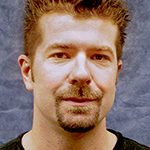 When Siemens joined the UWM faculty in 2007, he was already a premier researcher in gravitational-wave astronomy—a reputation earned from postdoctoral work at UWM, as well as Caltech and other institutions.
When Siemens joined the UWM faculty in 2007, he was already a premier researcher in gravitational-wave astronomy—a reputation earned from postdoctoral work at UWM, as well as Caltech and other institutions.
Siemens is a leader in the search for gravitational waves, whose existence is predicted by Einstein’s theory of general relativity. These faint, low-frequency waves carry information on the motions of objects in the universe, and their detection and analysis will allow scientists to observe further back into the history of the universe than ever before.
With Siemens’ novel incorporation of radio astronomy data into the quest, gravitational waves may soon be detected indirectly—as tiny fluctuations in the steady frequency of radio waves from spinning neutron stars. The promise of this idea has spawned the National Science Foundation’s new North American Nanohertz Observatory for Gravitational Waves (NANOGrav)—one of only 10 NSF Physics Frontiers Centers nationwide. With this five-year, $16 million grant, Siemens leads a team of more than 20 researchers from 11 institutions.
Siemens also contributes extensively to the Laser Interferometer Gravitational Wave Observatory Scientific Collaboration, a group of more than 900 scientists worldwide dedicated to the detection and analysis of gravitational waves—and the largest, most ambitious project ever funded by the NSF.
Siemens has published more than 150 papers, which have been cited more than 7,000 times. He has attracted more than $42 million in research grants—$34 million as principal investigator—including continuous funding from the NSF since 2008.
2013-2014
Alexander Arnold, Assistant Professor, Chemistry
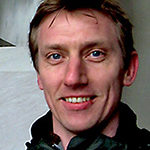 Alexander Arnold has assumed a key role in UWM’s mission of discovering new medicines for human disease.
Alexander Arnold has assumed a key role in UWM’s mission of discovering new medicines for human disease.
His discoveries on ligand-receptor interactions set the groundwork for novel drug development in the area of vitamin D, thyroid hormone, and androgen signaling, to name a few.
As a founding faculty member of the Milwaukee Institute for Drug Discovery (MIDD) at UWM, he uses his expertise in developing high-throughput screening methods for identifying promising drugs and drug targets from large molecular libraries.
This is not only essential to his own research, but also for supporting the work of other researchers. “Alexander has developed, equipped, and staffed a laboratory with broad expertise to perform in vitro pre-clinical assays and evaluate biological specimens from test animals. This capability is a core resource for my laboratory and many other investigators within the MIDD,” said nominator and UWM Distinguished Professor James Cook.
Arnold is currently involved in grants from the National Institutes of Health that total more than $5.3 million. His research has led to several patent applications, and two awarded patents, one of which was already licensed to the Boston biotechnology company KeraFAST Inc.
S. Scott Graham Assistant Professor, English
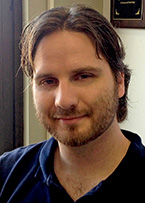 Can an English professor lay the foundation for restoring public trust in a federal agency and encouraging the many stakeholders involved in crafting national health care policy to play nice?
Can an English professor lay the foundation for restoring public trust in a federal agency and encouraging the many stakeholders involved in crafting national health care policy to play nice?
S. Scott Graham just might. The ambitious assistant professor of technical and professional writing has been credited for bringing new energy to the UWM English Department since he arrived in 2012 and founded the Scientific and Medical Communications Laboratory (SAMComm).Graham explores the effective and ethical uses of communication at the often volatile intersections of science and public policy, such as the interfaces among pharmaceutical companies, the Food and Drug Administration and public advocacy groups.
Rather than try to tease just quantitative data from these snarled webs of communication, Graham developed an innovative, qualitative data analysis server at SAMComm to document financial conflicts on federal pharmaceuticals policy.
In addition to national recognition, Graham is also attracting federal funding. English colleague Dave Clark writes that Graham’s funding so far–$300,000–and the nearly $1 million more in current proposals “promise to help the entire Professional and Technical Writing Program revise how it thinks about the potential of grant funding.”
Emily Latch Assistant Professor, Biological Sciences
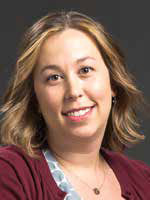 Emily Latch’s research uses molecular genetic tools and statistical genetic methods to understand how ecological processes influence formation of new species and hybridization of existing species.
Emily Latch’s research uses molecular genetic tools and statistical genetic methods to understand how ecological processes influence formation of new species and hybridization of existing species.
Her work is highly regarded by national and international researchers in her discipline. In 2013, her published work received a total of 94 citations.
“Dr. Latch’s papers demonstrate an integration of methods and ideas across molecular genetics, ecology, evolutionary biology, and wildlife management that is extremely valuable to all of these fields, but too rarely demonstrated by others who have more narrow expertise or interests,” says nominator Robert Lacy, a leader in the field of conservation genetics who has joint research appointments at the University of Chicago and the Chicago Brookfield Zoo.
Sara Oyler-McCance of the U.S. Geological Survey calls Latch “an emerging leader in wildlife genomics,” who can convey complicated molecular concepts in a way that is understandable to a lay audience.
“Emily is particularly well-known for using genetic techniques to address questions in wildlife management. She has documented the impacts of reintroductions of wildlife species by looking at hybridization, gene flow, and social structure, and has provided much insight into management strategies.”
Todd Miller, Assistant Professor Zilber School of Public Health
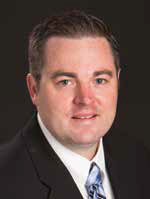 The research of Todd Miller focuses on algal blooms and the toxins they produce and release into the fresh- water environment, a potential threat to human health.
The research of Todd Miller focuses on algal blooms and the toxins they produce and release into the fresh- water environment, a potential threat to human health.
Miller is the leader of an international coalition of 20 scientists in 14 nations who collaborate to understand water eutrophication and algal toxin production.
With a background that encompasses micro- biology, genomics and analytical chemistry, he is well positioned to take a leading role in under- standing the nature of those problems and addressing their remediation.
“I do not know anyone else quite like him in terms of scientific breadth,” says nominator and UWM Distinguished Professor David Petering.
Miller also has linked his work to the greater community by partnering with the national Children’s Environmental Health Science Core Center and the City of Milwaukee Health Department on water quality issues.
In addition to these accomplishments, Miller has been wildly successful at attracting grants. In only three years, he has garnered just under $1 million in funding from the National Science Foundation and the National Institutes of Health. Not only is it extremely difficult to obtain top-tier funding on the first try, but also Miller as earned these while the Zilber School was just launched.
Nathaniel Stern, Associate Professor, Art & Design
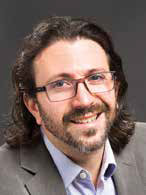 Nathaniel Stern’s work bridges multiple disciplines, merging new with traditional media, installation with inter- active art, and the maker community with entrepreneurial endeavors.
Nathaniel Stern’s work bridges multiple disciplines, merging new with traditional media, installation with inter- active art, and the maker community with entrepreneurial endeavors.
He shows a sustained commitment to contemporary art practice, a vast conceptual and technical expertise, and diverse experiences as a scholar and art practitioner.
“His scholarly and creative research thoughtfully and seamlessly integrate to analyze digital media in a manner rarely seen in academics with a hybrid practice,” says one of his nominators.
It’s one reason he is sought after by multiple disciplines at UWM to teach a variety of research- intensive courses, be it the graduate seminars in Art and Design, senior seminars in Global Studies, Product Realization in Engineering, Entrepreneurship Experience in Business. As co-founder of UWM’s Student Startup Challenge, Stern inspires students to turn their ideas into companies.
“What distinguishes these pieces, and indeed all of Stern’s work,” says another nominator, “is a playful and rigorous collision of computational and digital media with more traditional media forms, whether prints, photographs or sculpture.”
This approach has earned him international acclaim. His project “Tweets in Space” garnered a huge buzz while still in its fundraising phase, with stories about the project appearing in Scientific American, National Geographic and Forbes.
2012-2013
Luca Ferrero, Associate Professor, Philosophy
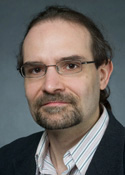 Luca Ferrero is a recognized leader in the philosophy of action, a broad field that explores aspects of human action and decision-making, including intention and intentional action, the ontology of action, motivation, free will, and social action.
Luca Ferrero is a recognized leader in the philosophy of action, a broad field that explores aspects of human action and decision-making, including intention and intentional action, the ontology of action, motivation, free will, and social action.
The work of philosophers of action often overlaps with that of non-philosophers including jurists, neuroscientists, and psychologists. Ferrero studies how the nature of intentional action changes over time, and how such actions influence personal identity.
Michael E. Bratman, professor of philosophy at Stanford University and eminent thinker in the philosophy of action, has cited four publications that best represent Ferrero’s work. “Taken together,” he writes, “these essays constitute an extended and insightful investigation into the relations between time and our rational, autonomous agency. I know of no other younger scholar of philosophy who has made such progress on these basic issues.”
Recognition for his work include a 2005 Stanford Humanities Fellowship, selection for a 2011 NEH Summer Seminar on 20th Century American Philosophy at Princeton University, and numerous UWM distinctions, including two fellowship offers from the Center for 21st Century Studies, two Graduate School Research Committee Awards, and three Arts and Humanities Research Travel Awards. In addition, his 2008 essay “Action” tops the “Popular Essays” list on the Web site philosophyofaction.com.
Benjamin Johnson, Associate Professor, History
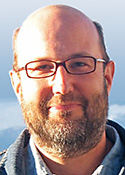 Ben Johnson’s areas of research include three somewhat overlapping yet distinct fields: the history of the American West, the broader history of the North American borderlands, and environmental history.
Ben Johnson’s areas of research include three somewhat overlapping yet distinct fields: the history of the American West, the broader history of the North American borderlands, and environmental history.
His first two award-winning books, Revolution in Texas: How a Forgotten Rebellion and Its Bloody Suppression Turned Mexicans into Americans, and Bordertown: The Odyssey of an American Place, explore racial strife on the U.S.-Mexico border. Johnson is now working on a history of the conservation movement in the Progressive Era, a time that popularized the idea that wilderness is spiritually renewing and an essential part of the national landscape.
Stephen Aron, professor and chair of the UCLA Institute for the Study of the American West, writes that Johnson’s achievements in Revolution in Texas go “well beyond the usual for a first book,” and that it “stands, in fact, as a primer for how to write borderlands history.” Aron further writes that Johnson’s scholarship is “shaping the direction of multiple fields and inspiring other scholars to do the same.”
Among other achievements are a 2013-’14 NEH Faculty Fellowship for his project, “A History of the American Conservation Movement” and a faculty appointment in the 2013 NEH Summer Institutes for schoolteachers.
Krista Lisdahl, Assistant Professor, Psychology
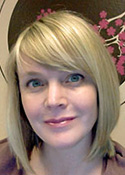 Krista Lisdahl is advancing our understanding of how chronic drug use effects the brains of adolescents and young adults. With a unique, multidisciplinary approach integrating molecular genetics, brain structure and function, and behavior, her lab aims to better understand the cognitive consequences of a chronic pot habit in the developing brain, and whether physical exercise can reduce or even prevent the damage, or decrease drug abuse.
Krista Lisdahl is advancing our understanding of how chronic drug use effects the brains of adolescents and young adults. With a unique, multidisciplinary approach integrating molecular genetics, brain structure and function, and behavior, her lab aims to better understand the cognitive consequences of a chronic pot habit in the developing brain, and whether physical exercise can reduce or even prevent the damage, or decrease drug abuse.
The research also seeks more information about the process of connectivity in the maturing brain and the role of physical activity in that process.
Described by a department colleague as “truly cutting-edge work,” Lisdahl’s research has garnered several national awards, perhaps most notably the Presidential Early Career Award for Scientists and Engineers, the highest honor bestowed by the U.S. government on professionals in the early stages of their research careers.
Lisdahl has published 30 peer reviewed articles and book chapters and has eight more under review or in progress. Seven of her publications have come since her arrival at UWM in 2011. Lisdahl has 59 papers or posters presented at conferences and 11 invited lectures at research institutions around the country. Her research has been funded by more than $2 million from the National Institutes of Health.
2011-2012
Christine Larson, Associate Professor, Psychology
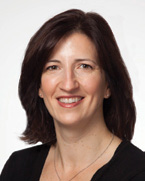 Why is a smile perceived as happy, while a scowl is considered threatening? Christine Larson’s work on emotion has demonstrated that understanding the effects of visual signals of threat and happiness can be reduced to fundamental properties, such as their geometry.
Why is a smile perceived as happy, while a scowl is considered threatening? Christine Larson’s work on emotion has demonstrated that understanding the effects of visual signals of threat and happiness can be reduced to fundamental properties, such as their geometry.
Using two important techniques to explore the emotion-brain connection—neuroimaging and psycho-physiology—Larson has discovered that certain shapes influence neural circuits in the brain that are involved in emotional processing.
With more than $1 million in funding from the National Institutes of Health, Larson also probes the regulation of emotions, with a focus on clarifying its role in depression and anxiety disorders.
“Chris sets herself apart from psychologists who do neuroimaging and psycho-physiology by being one of the few scientists in the world who does both,” according to one nominator.
Her work has been recognized by various publications and with several awards, including the K-award from N I H, given specifically to promising scientists wishing to acquire training in new areas of their disciplines. This will allow Larson to add molecular genetic techniques to her neurobiological investigations of emotional regulation.
Amanda Seligman, History
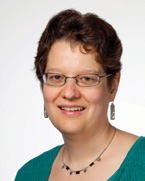 Between Amanda Seligman’s numerous articles and well-reviewed book, Block-by-Block, colleagues say she is reshaping what scholars thought they knew about post-war urbanization. Eagerly anticipated is her book on community organizing in Chicago—of unique interest in political and pop-cultural contexts, in addition to its historical relevance. As America pondered similarities between the Great Depression and the 2008 financial collapse, Seligman designed and taught a 2009 class on the question, attracting more than 80 undergraduates and curious “drop-in” students in her fellow history faculty.
Between Amanda Seligman’s numerous articles and well-reviewed book, Block-by-Block, colleagues say she is reshaping what scholars thought they knew about post-war urbanization. Eagerly anticipated is her book on community organizing in Chicago—of unique interest in political and pop-cultural contexts, in addition to its historical relevance. As America pondered similarities between the Great Depression and the 2008 financial collapse, Seligman designed and taught a 2009 class on the question, attracting more than 80 undergraduates and curious “drop-in” students in her fellow history faculty.
A richly detailed narrative style has earned her praise as a rising star in urban history and mirrors her exhaustive, engaging research approach. From neighborhood block parties to university laboratories, she strives for complete, balanced, accurate storytelling. As a humanities professor writing the book, Is Graduate School Really for You?, Seligman devoted additional time to researching and reporting on the experience of graduate students in laboratory sciences.
She continues to keep her research close to home as lead organizer and editor of the upcoming Encyclopedia of Milwaukee. For this collaboration between UWM and Marquette, Seligman helped secure RGI funding and negotiated key production contracts. She simultaneously contributed to other encyclopedias, directed the Urban Studies program and taught entry-level through doctoral students of history. It’s working, say colleagues, who note that Seligman has attracted “legions of graduate students” to UWM.
Xiaohua Peng, Chemistry and Biochemistry
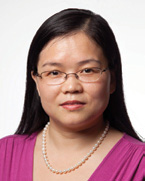 Xiaohua Peng has developed a novel platform for anticancer drugs that can specifically kill cancer cells while reducing the potential for toxicity to normal cells. The work could lead to cancer treatments with far fewer harsh side effects.
Xiaohua Peng has developed a novel platform for anticancer drugs that can specifically kill cancer cells while reducing the potential for toxicity to normal cells. The work could lead to cancer treatments with far fewer harsh side effects.
“Her independent research has shown creativity, courage to try new ideas and the ability to integrate novel concepts across scientific disciplines,” says one nominator.
A founding faculty member of UWM‘s Milwaukee Institute for Drug Discovery, Peng’s research has attracted international attention. Her work was featured in a news report published by the Royal Society of Chemistry, London. She has presented her work at National Institutes of Health workshops and at the Gordon Research Conference, considered the premier global scientific conference for leading investigators in the field.
Peng’s goal is to connect basic science discovery to improved patient care. Her work at UWM has led to two patent applications, a key step in the transfer of technology from the lab to use in oncology practice.
In May, she received the Greater Milwaukee Foundation’s Shaw Scientist Award, which, in addition to providing $200,000 in support of her work, recognizes the importance, impact and potential of her contributions to cancer research.
Na Jin Seo, Industrial and Manufacturing Engineering
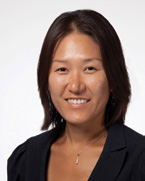 Na Jin Seo has produced biomechanical models that explain the need and potential for new hand-strength and function assessment tools in medical clinics. Currently, clinics measure hand strength and function with grip and pinch gauges that do not capture the subtle effects of neurological impairment nor take friction into account.
Na Jin Seo has produced biomechanical models that explain the need and potential for new hand-strength and function assessment tools in medical clinics. Currently, clinics measure hand strength and function with grip and pinch gauges that do not capture the subtle effects of neurological impairment nor take friction into account.
“She is one of the most productive investigators in the field of hand biomechanics and rehabilitation,” says one nominator.
The National Institute on Disability and Rehabilitation Research awarded Seo the Distinguished Fellowship Award for her research to develop innovative assistive devices for people with disabilities. Her research on how strokes affect hand functioning has appeared in both journals and non-journal publications, including Science Daily and Rehab Management magazine.
Seo has been exceptional in mentoring students in research, procuring extramural training fellowships for them from organizations such as the American Society of Biomechanics and the American Heart Association. Her graduate students took first, second and third places at this year’s Larry Hause Student Poster Competition held at the Milwaukee School of Engineering. Under her mentorship, 12 undergraduates have produced national and international conference publications.
Seo also participates in local stroke support groups, encouraging stroke survivors to become involved in community events and university research.
2010-2011
Margaret L. Fraiser, Assistant Professor, Geosciences
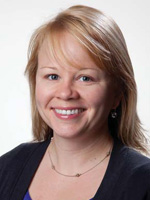 Margaret Fraiser’s work focuses on understanding how simple marine organisms adapted to, recovered from and evolved after the worst mass extinction of life in Earth’s history 252 million years ago. The work is particularly significant because it is helping to unravel how ancient life forms responded to dramatic climate change and drastically elevated levels of atmospheric carbon dioxide.
Margaret Fraiser’s work focuses on understanding how simple marine organisms adapted to, recovered from and evolved after the worst mass extinction of life in Earth’s history 252 million years ago. The work is particularly significant because it is helping to unravel how ancient life forms responded to dramatic climate change and drastically elevated levels of atmospheric carbon dioxide.
Fraiser is quickly becoming a world expert on this topic.
Working with six other colleagues from China, Australia, the U.K. and the U.S., Fraiser has helped form a large international collaborative of scientists who study patterns from the mass extinction biotic recoveries in various environmental settings and climate zones.
She also was asked to be a special guest editor for Global and Planetary Change, connecting her work to the quest to understand how Earth’s organisms will respond to climate change today and in the future.
Peter Geissinger, Associate Professor, Chemistry and Biochemistry
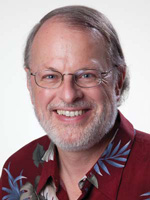 Peter Geissinger’s record of accomplishment during the last 12 years at UWM is impressive. In addition to securing $2.25 million in funding, he has published 25 peer-reviewed journal articles and five book chapters. He has also transferred his research into a productive collaboration with local industry.
Peter Geissinger’s record of accomplishment during the last 12 years at UWM is impressive. In addition to securing $2.25 million in funding, he has published 25 peer-reviewed journal articles and five book chapters. He has also transferred his research into a productive collaboration with local industry.
Advanced Chemical Systems, a Milwaukee-based company that develops water treatment technologies, has signed an option to license Geissinger’s optical-fiber sensor technology, which has been supported by the Bradley Foundation.
His novel research has also resulted in two patents—one issued and one pending. Geissinger recently completed a prestigious Erskine Fellowship at the University of Canterbury in New Zealand.
“Peter’s research is truly ‘cross-cutting’ in that, while educated in physics, his work is not only within the discipline of physical chemistry, but also encompasses analytical, biochemical and environmental research,” says one nominator.
As an example, one of his doctoral students recently won “best poster” award at an annual meeting attended mostly by geologists, biologists and civil engineers. “To have the research of a physical chemistry group so well-recognized at this meeting is quite remarkable,” says a nominator.
Rebecca D. Klaper, Associate Professor, Freshwater Sciences
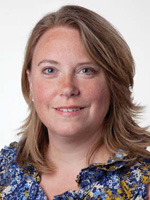 Rebecca Klaper has clearly established herself as an expert on the biological effects of nanoparticles and emerging contaminants on aquatic organisms. She was one of the first researchers to identify the characteristics of nanomaterials that may cause toxicity in water.
Rebecca Klaper has clearly established herself as an expert on the biological effects of nanoparticles and emerging contaminants on aquatic organisms. She was one of the first researchers to identify the characteristics of nanomaterials that may cause toxicity in water.
In addition, she has conducted many studies gauging the effects of environmental exposure to trace amounts of pharmaceuticals in fish, including some of the first studies on how exposure to Prozac adversely affects fish reproductive behavior. Using genomics, she determines which genes in fish are “turned on” or “turned off” in controlling such behavior.
Klaper is a sought-after resource on environmental toxicology for numerous governmental agencies, including the U.S. Environmental Protection Agency and the National Academy of Sciences panel on the health and safety aspects of engineered nanomaterials.
She also enthusiastically promotes science to the public. She was producer of the 2008 documentary film “Inland Seas: Understanding and Protecting the Waters of the Great Lakes.” In 2009 she was recognized by Milwaukee Magazine as one of 36 “new leaders under 40 who will change Milwaukee.”
Marius Schmidt, Assistant Professor, Physics
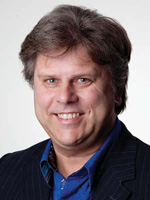 Marius Schmidt has made important contributions in the relatively new field of time-resolved crystallography, a technique that allows him to image proteins as their atomic structure changes during biochemical reactions.
Marius Schmidt has made important contributions in the relatively new field of time-resolved crystallography, a technique that allows him to image proteins as their atomic structure changes during biochemical reactions.
Using this X-ray diffraction technique, Schmidt can image an ensemble of molecules in five dimensions—three spatial dimensions and time. By adding and varying temperature, he can see all the changes in the protein as they happen, obtaining a comprehensive view of how it carries out essential functions.
This research could lead to a rational design of optical switches that could be used in biophysical research.
Replicating the work of proteins also is an important aspect of new drug discovery. Schmidt received an Early Career Development (CAREER) Award in 2010, the most prestigious grant for younger researchers given by the National Science Foundation.
“This is a competitive field in which Schmidt has excelled,” says one of his nominators. Says another: “With his connections, his world-class experimental experience and his analysis methods, he is poised to make high-impact research in this new direction.”
Andrea C. Westlund, Assistant Professor, Philosophy
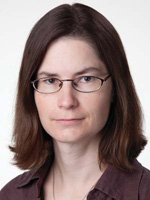 Andrea Westlund is acknowledged by peers as much for her original contributions to moral philosophy as she is for her deeply relevant subject matter and everyday eloquence.
Andrea Westlund is acknowledged by peers as much for her original contributions to moral philosophy as she is for her deeply relevant subject matter and everyday eloquence.
“Her ideas are developing in new directions and it is absolutely clear that not only is her current work outstanding, but her best work is yet to come,” writes one colleague.
Westlund’s work on companion love and forgiveness—in “tightly argued, systematic, zero-fluff” writing—inspires particular praise. She does not proffer marital advice, nor does she make value-laden suggestions about those grievances that deserve forgiveness, or those that do not. Acknowledging the complexity of human relationships, she offers morality as a window through which to look at those near us and consider our response to them.
In her own words, forgiveness “expresses moral faith in an offender, understood as readiness to interpret the offender as worthy of one’s love and goodwill even though the underlying realities are indeterminate.”
Westlund’s philosophy, adds another nominator, is the kind that lingers on after the book has been closed or the page has been turned. “Her work is never just an intellectual exercise. It is the sort of work that a reader can come away from personally changed.”
2009-2010
Jolien D. Creighton, Associate Professor, Physics
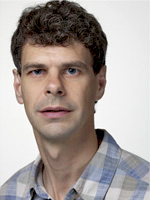 Jolien Creighton is one of a new breed of gravitational physicists who works at the interface of theory and experiment. Detecting gravitational waves—ripples in space-time caused by violent movement of massive objects in space—is among the most challenging scientific endeavors of the century.
Jolien Creighton is one of a new breed of gravitational physicists who works at the interface of theory and experiment. Detecting gravitational waves—ripples in space-time caused by violent movement of massive objects in space—is among the most challenging scientific endeavors of the century.
Finding evidence for gravitational waves requires the observation of a change in the distance between two mirrors on a detector that is smaller than a proton! It requires physicists like Creighton to extract a signal that is deeply buried in “noise,” a task that Creighton accomplishes using algorithms.
His research brings together a deep understanding of theoretical gravitational physics with a superb technical mastery of data analysis and statistical methodologies in a unique way. For example, he developed methods for detecting weak, short bursts of gravitational radiation from sources that cannot be accurately modeled theoretically or numerically.
“The most recent talk I heard by Jolien was entitled something like, ‘Searches for gravitational waves from bursts, compact binaries and ringdowns,'” says Barry Barish, Linde Professor of Physics Emeritus at the California Institute of Technology. “This title alone demonstrates the breadth of his in-depth work because the three topics have very different challenges and opportunities and Jolien has been central to all three.”
His high stature in gravitational physics also is reflected in the funding he has received from the National Science Foundation, which includes well over $2 million in grants as principal investigator.
Jennifer A. Jordan, Associate Professor, Sociology
 Jennifer Jordan has distinguished herself as an outstanding scholar for her work in the areas of collective memory and the sociology of food. She has maintained a remarkable pace of research since attaining tenure in 2006.In her first book, Structures of Memory, she explores why certain places in the urban landscape of Berlin—and, by extension, other places such as Oklahoma City—become marked as significant in our collective memory, while others fade.
Jennifer Jordan has distinguished herself as an outstanding scholar for her work in the areas of collective memory and the sociology of food. She has maintained a remarkable pace of research since attaining tenure in 2006.In her first book, Structures of Memory, she explores why certain places in the urban landscape of Berlin—and, by extension, other places such as Oklahoma City—become marked as significant in our collective memory, while others fade.
“Her writings demonstrate a highly detailed and meticulous style of qualitative research,” says one nominator.
Now she has “made the turn” from the research of her dissertation, which resulted in the highly praised book, and created a whole new research direction. Her work on the cultural meanings of heirloom produce and heritage livestock links memory, location, status and taste.”
Her attention to contexts of locale and space is one of Jennifer’s singular contributions to studies of collective memory,” says one nominator.
Not only has the draft of her second book, Edible Memory, already generated interest from one of the most prestigious presses in sociology, but Jordan also has garnered much coverage in the general media.
She also has been extraordinarily successful in generating external funding for research that is typically un- or underfunded. In her time at UWM, she has received funding from no less than five different external sources, including the Austrian Science Fund, the Austrian equivalent of the National Science Foundation in the U.S.
Lindsay J. McHenry, Assistant Professor, Geosciences
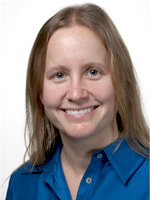 Much of Lindsay McHenry’s work has been focused at Olduvai Gorge in Tanzania, one of the world’s most famous paleo-anthropological locations, and is helping to unravel questions of early human evolution. McHenry is a geologist who uses geochemical analysis and correlation of volcanic ashes to help archaeologists at Olduvai accurately date finds at excavation sites.
Much of Lindsay McHenry’s work has been focused at Olduvai Gorge in Tanzania, one of the world’s most famous paleo-anthropological locations, and is helping to unravel questions of early human evolution. McHenry is a geologist who uses geochemical analysis and correlation of volcanic ashes to help archaeologists at Olduvai accurately date finds at excavation sites.
These artifacts are buried in a complex succession of sedimentary and highly altered volcanic strata, rather than in neat, chronological layers. That has prevented researchers from identifying the first appearance of some of the various fossils and stone-tool technologies.
McHenry is involved in fieldwork in at least three other sites near Olduvai, demonstrating the interest of many project leaders in counting on her expertise, says one nominator. “It is not an exaggeration to state that Dr. McHenry is becoming a key researcher on the study of quaternary geology in East Africa.”
Because of the importance of Olduvai and the charged political climate, it is extremely difficult to obtain funding and permits to work in the gorge. But McHenry has managed to navigate these difficult waters and secure substantial funding.
As a result, she advanced this summer from being a participant on various field teams working within the gorge to being a lead principal investigator and team leader in charge of an international group.
Her research in altered volcanic ash in archaeological contexts has also led McHenry to a new line of inquiry. She has discovered that her methods are relevant to the study of the history of water on Mars.
Abdolhosein “Adel” Nasiri, Associate Professor, Electrical Engineering & Computer Science
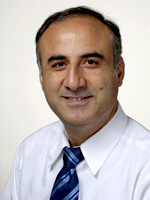 Adel Nasiri’s research is focused on wind energy, particularly energy-efficient electronics and wind turbines, as well as the effective use of energy storage systems. His work addresses the need to integrate renewable energy systems with conventional power sources without major disruptions.
Adel Nasiri’s research is focused on wind energy, particularly energy-efficient electronics and wind turbines, as well as the effective use of energy storage systems. His work addresses the need to integrate renewable energy systems with conventional power sources without major disruptions.
In the past five years, he has demonstrated great potential to achieve distinction in the field through his scholarship, well-funded research activities and broad collaboration, especially with local industry, which provides some of his funding.
“Dr. Nasiri is a scholar with a strong record of research accomplishments that can have significant impacts in solving our energy crisis,” says one nominator. “Moreover, he plays a crucial role in connecting with local companies owing to the synergy of his research with the industrial base in Wisconsin.”
Since joining the faculty in 2005, Nasiri has acquired two patents, and a third is pending. He has achieved an impressive level of funding from the National Science Foundation and the U.S. Department of Energy, and has developed collaborative research relationships with other UWM schools and departments and other institutions in Milwaukee.
His large team of 11 graduate students demonstrates his success in building a research program in power electronics and renewable energy in only a brief period.”
The record of external funding shows that he is gaining recognition for his creativity and innovations,” says a nominator. “His professional activities are commensurate with a ‘rising star’ in his field.”
2008-2009
Scott J. Adams, Associate Professor, Department of Economics
 Scott Adams specializes in the economics of health policy, the labor market for older workers, and the effect of living-wage ordinances—popular local laws that set wages that companies doing business with the government must pay to their employees.
Scott Adams specializes in the economics of health policy, the labor market for older workers, and the effect of living-wage ordinances—popular local laws that set wages that companies doing business with the government must pay to their employees.
Adams has become a national expert on these policies, showing how they have affected employment and the distribution of income.
He is a skilled and creative researcher, whose studies have generated substantial interest from the popular media, including the Washington Post, USA Today and The Economist.
He also is highly sought-after by policymakers. A clear indication of the regard with which his work is held in the profession was his selection last academic year as a senior staff economist on the President’s Council of Economic Advisers.
The nine appointees to this post are chosen by the best economists from a handful of leading departments. Adams is the first from UWM to be named to this position.
Erica Bornstein, Assistant Professor, Department of Anthropology
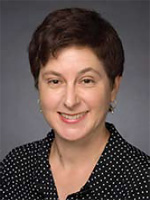 Erica Bornstein’s research on humanitarianism in India, begun after her arrival at UWM in 2004, is at the forefront of the emerging field of comparative studies of humanitarianism. Her work encompasses philanthropy, charity, humanitarianism, nongovernmental organizations, political anthropology and the anthropology of religion.
Erica Bornstein’s research on humanitarianism in India, begun after her arrival at UWM in 2004, is at the forefront of the emerging field of comparative studies of humanitarianism. Her work encompasses philanthropy, charity, humanitarianism, nongovernmental organizations, political anthropology and the anthropology of religion.
Her 2003 book, The Spirit of Development: Protestant NGOs, Morality, and Economics in Zimbabwe, has been adopted for courses in at least 15 universities, including Stanford and the London School of Economics.
In 2006-07, Bornstein was one of six resident scholars at the School of Advanced Research on the Human Experience in New Mexico. In 2008 she co-organized an advanced seminar at the school that produced the forthcoming volume Forces of Compassion: Humanitarianism Between Ethics and Politics.
James Ferguson, chair of the Anthropology Department at Stanford University, wrote that Bornstein “combines an extraordinarily acute, critical intelligence with exceptional imagination, creativity and intellectual curiosity,” adding that her dissertation was “one of the most exciting and original that I have seen.”
Michael Liston, Professor, Department of Philosophy
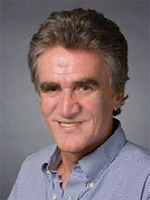 Michael Liston has distinguished himself among philosophers of science and mathematics with his deep knowledge of the disciplines’ actual history. He has compiled an impressive record of research in the philosophies of science, mathematics and language, and has also written on the philosophy of logic and philosophical naturalism.
Michael Liston has distinguished himself among philosophers of science and mathematics with his deep knowledge of the disciplines’ actual history. He has compiled an impressive record of research in the philosophies of science, mathematics and language, and has also written on the philosophy of logic and philosophical naturalism.
Liston is currently writing a book on philosopher, physicist and historian Pierre Duhem, an important figure of the late 19th and early 20th centuries. Liston’s research on Duhem’s philosophy of science was funded by a 2006 UWM Research Growth Initiative<sup® (RGI) award, and subsequently by the National Science Foundation in 2007, a rare accomplishment among philosophers.
Arnold Koslow, philosophy professor at City University of New York, calls many of Liston’s papers “philosophical gems so worthy, and filled with interesting arguments and evaluations that they will repay continued study.”
Liston has also been a fellow at the Center for 21st Century Studies and received two UWM Sabbatical awards and a Graduate School Research Committee Award.
Jorg Woehl, Assistant Professor, Department of Chemistry and Biochemistry
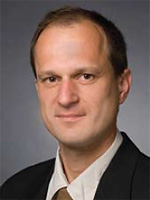 Jorg Woehl’s research expertise lies in the imaging and manipulation of single nanoscale objects.
Jorg Woehl’s research expertise lies in the imaging and manipulation of single nanoscale objects.
Prior to coming to UWM in 2004, Woehl had already built a reputation in his field—near-field scanning optical microscopy (NSOM), which uses a subwavelength light source as a scanning probe.
He is one of the few people in the world with this expertise and has built an extremely sophisticated experimental laboratory focusing on NSOM imaging. The equipment he has built is so precise that it can obtain information on a single molecule.
He also is investigating nano-positioning methods for molecules on surfaces, such as proteins in biological membranes. If successful, such methods would provide new avenues for probing molecular function and present new potential applications.
Woehl has filed three patent applications related to his research on methods for fabricating novel optical fiber tips from photonic crystal fibers. He also has translated his initial experimental successes into both publications and funding since his arrival at UWM.
Lei “Leslie” Ying, Associate Professor, Department of Electrical Engineering and Computer Science
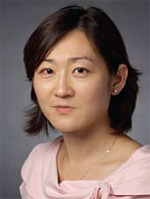 Lei Ying’s work revolves around improving magnetic resonance imaging (MRI) techniques, which currently are too slow to be effective for use on parts of the body that move, such as the heart.
Lei Ying’s work revolves around improving magnetic resonance imaging (MRI) techniques, which currently are too slow to be effective for use on parts of the body that move, such as the heart.
Ying’s work has opened up a new research direction for developing algorithms that will achieve the highest imaging speed possible.
She is one of the first researchers to investigate the application of a math theory called “compressing sensing” to MRI, and she is leading the field. Compressed sensing would enable MRIs to produce real-time pictures of internal human organs without sacrificing the quality of the image. It could potentially improve diagnoses of many diseases.
Ying’s achievements have recently been recognized by the National Science Foundation with a prestigious Early CAREER Award.
She holds two U.S. patents through the UWM Research Foundation and will soon have a third. In addition, Ying has established collaborations with other institutions and industries, and with other departments at UWM.
2007-2008
Junhong Chen, Associate Professor, Mechanical Engineering
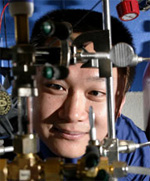 The research of mechanical engineer Junhong Chen includes unique production of nanoparticles for advanced technology devices and development of nanoscale gas and biological sensors.
The research of mechanical engineer Junhong Chen includes unique production of nanoparticles for advanced technology devices and development of nanoscale gas and biological sensors.
Using plasma—partially ionized gases—Chen’s lab produces nanocrystals with precise size, form, structure, and composition, and on various surfaces.
The miniaturized gas sensors under development in his lab, which rapidly identify trace amount of gases/vapors or their mixtures, are important in such areas as environmental monitoring, medical diagnosis, food processing, and control of other industrial processes. Chen’s UWM Research Foundation Catalyst Grant is funding development of a nanoscale gas sensor that combines and improves upon two existing sensor technologies.
Chen’s graduate advisor at the University of Minnesota, Jane Davidson, writes that “he is one of the leading young scientists in the U.S. and has the intellect and drive to become one of the future superstars.”
Other funding for Chen’s research since 2004 includes a Research Growth Initiative® award, five grants from the National Science foundation, and grants from the Environmental Protection Agency, Xerox Corporation, and Miller Electric Manufacturing in Appleton.
Dyanna Czeck, Assistant Professor, Geosciences
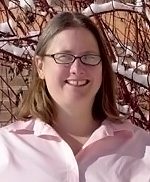 Dyanna Czeck studies how rocks deform under stresses caused by tectonic motions. Such research is important for understanding how and where rocks may fault—break catastrophically—or flow—deform gradually—in tectonically active areas.
Dyanna Czeck studies how rocks deform under stresses caused by tectonic motions. Such research is important for understanding how and where rocks may fault—break catastrophically—or flow—deform gradually—in tectonically active areas.
Her specific areas of study include the three-dimensional flow processes, mineral alignment, and strain in deformed rocks.
Czeck’s work is remarkable for the wide range of research techniques she employs. In addition to traditional geologic field mapping and geophysical surveys, she uses electron microscopy, material flow studies, and GIS technologies.
Czeck is a widely traveled researcher, having done fieldwork in the Sierra Nevada mountains, Wisconsin, Minnesota, New Mexico, Utah, Canada, Scotland, and Spain.
UW-Madison structural geologist Basil Tikoff writes of Czeck, “Her integration of field geology, quantitative analysis, and geophysical methods has had a major impact” on knowledge of lateral-motion faults, adding that “It is a pleasure to work with someone as intellectually alive as Dyanna.”
In addition to a 2005 grant from the National Science Foundation, Czeck received a 2003 UWM Research Committee Award and a 2006 Research Growth Initiative® award.
Prasenjit Guptasarma, Associate Professor, Physics
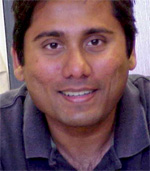 Understanding unconventional superconductivity, and other phenomena involving strong interactions between electrons, is considered the Holy Grail of condensed matter physics. Such research has helped produce many electronic devices we use today—devices that are faster, greener, cheaper, and smarter.
Understanding unconventional superconductivity, and other phenomena involving strong interactions between electrons, is considered the Holy Grail of condensed matter physics. Such research has helped produce many electronic devices we use today—devices that are faster, greener, cheaper, and smarter.
Prasenjit Guptasarma and his colleagues have carried out pioneering work in superconductivity and magnetism, now published in many influential research journals such as Nature. In 2005, Guptasarma won the National Science Foundation’s prestigious CAREER award. Today, he continues to attract a substantial level of extramural funding.
To probe fundamental interactions, physicists use single crystals and study them in extreme environments such as very low temperature and high magnetic field.”
He ranks among the most promising young experimental physicists in this country today,” says Arun Bansil, program manager in the Office of Science at the U.S. Department of Energy. “He is already among the best crystal growers in the world.”
He also is well-known for the how often other scientists cite his published work in their own research. More than 1,500 publication citations places Guptasarma in the top 5 percent of associate professors in condensed matter physics, says Marshall Onellion, professor of physics at UW-Madison.
2006-2007
Daniel Agterberg, Associate Professor, Physics
 Daniel Agterberg’s basic research is helping explain how superconductors work. They’re already revolutionizing the power, cell-phone, and magnetic imaging industries, but Agterberg is helping to overcome obstacles that could allow superconductors to help create a new type of faster, quantum computer.
Daniel Agterberg’s basic research is helping explain how superconductors work. They’re already revolutionizing the power, cell-phone, and magnetic imaging industries, but Agterberg is helping to overcome obstacles that could allow superconductors to help create a new type of faster, quantum computer.
How some materials are able to conduct electricity with zero resistance has long been a mystery to scientists, and Agterberg’s bold predictions have helped overturn long-standing beliefs and resolved some important questions.
Professor Manfred Sigrist, at the Swiss Federal Institute of Technology in Zurich, writes that “Daniel is a highly gifted and original researcher with the rare talent to connect experiments and theoretical concepts in a very physical and intuitive way.”
Agterberg attracted a nearly quarter-million-dollar grant from the National Science Foundation, an impressive feat in the competitive field of superconductivity.
Agterberg is primary or contributing author of 50 articles since 1993 and has been invited to give 20 conference presentations and 21 seminars and colloquia. He has also received two UWM Research Committee Awards and funding for a 2006 Research Growth Initiative® proposal.
Jian Chen, Assistant Professor, Chemistry
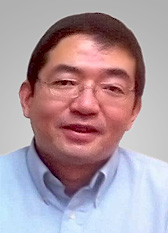 With previous success in industry, Jian Chen has hit the ground running at UWM. Since arriving in August 2005, the materials chemist has focused his group’s research on fundamental understanding of organic nanomaterials and their applications in alternative energies, smart materials, and biomedical materials and devices.
With previous success in industry, Jian Chen has hit the ground running at UWM. Since arriving in August 2005, the materials chemist has focused his group’s research on fundamental understanding of organic nanomaterials and their applications in alternative energies, smart materials, and biomedical materials and devices.
After nearly five years of research and development at nanotech company Zyvex Corporation, Chen has established a state-of-the-art nanomaterials laboratory at UWM and collaborated with researchers from the College of Engineering and Applied Science and the WATER Institute.
At UWM Chen has generated over $910,000 in external funds from the National Science Foundation and Environmental Protection Agency, and has received Research Growth Initiative® funding in each year of the program, as well as a 2007 MiTAG award.
Kristene Surerus, Chair of the UWM Chemistry and Biochemistry Department, praises Chen’s “multidisciplinary approach and wide-ranging collaborations with physicists, chemists, biologists, and engineers,” and writes that “Jian has excelled both in an industrial setting and in academia.”
Chen holds seven patents, and has filed three provisional patents since coming to UWM.
Shaoqin “Sarah” Gong, Assistant Professor, Mechanical Engineering
 After just two years at UWM, Shaoqin “Sarah” Gong has established one of the best research funding records at the College of Engineering and Applied Science.
After just two years at UWM, Shaoqin “Sarah” Gong has established one of the best research funding records at the College of Engineering and Applied Science.
Gong is developing microcellular bio-based polymer nanocomposites with the goal of improving the performance of plastics made from renewable resources. She also is making new polymers suitable for human tissue regeneration and drug delivery. In addition, she is developing novel polymer nanocomposites with unique actuation capabilities. She is author or co-author of 70 technical papers on a wide range of topics, Gong’s research has attracted over $1.2 million extramural funding from the National Science Foundation, Environmental Protection Agency, and the Wisconsin Department of Agriculture, including an NSF CAREER award, the most prestigious award for junior faculty members. She also is a principal investigator for three UWM Research Growth Initiative® grants.
Lih-Sheng Turng, co-director of the UW-Madison Polymer Engineering Center, writes, “Every major research university would like to have Professor Gong in light of her research accomplishments and fund-raising record. . . which are incredible, to say the least.”
Thomas Hubka, Professor, Architecture
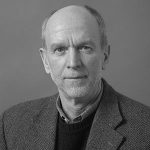 Thomas Hubka is widely recognized for his studies of vernacular architecture, which refers to common, everyday buildings indigenous to a specific time or place.
Thomas Hubka is widely recognized for his studies of vernacular architecture, which refers to common, everyday buildings indigenous to a specific time or place.
He is best-known for his research on 18th century wooden synagogues of Eastern Europe. In the words of UWM Architecture Department Chair Brian Wishne, this work “single-handedly restored the history and significance of the architecture of Polish wooden synagogues from the lost Jewish-built culture and communities of Eastern Europe.”
Culminating in the 2003 book, Resplendent Synagogue, this work led to Hubka’s lifetime achievement award from the Vernacular Architecture Forum in 2004.
His 1984 book, Big House, Little House, Back House, Barn—also recognized by the Vernacular Architecture Forum—was described by a reviewer as “one of the standard works on regional farmsteads in America.” Other areas of his research include imagery in the design process, New England farm architecture, vernacular architecture theory, and the architecture of H.H. Richardson.
He is currently investigating American popular housing of the 19th and 20th centuries, including case studies of working-class housing in major U.S. cities.
2005-2006
Adrian Dumitrescu, Electrical Engineering & Computer Science
Rina Ghose, Geography
Karen Marek, Nursing
Krishna Pillai, Mechanical Engineering
2004-2005
Gil Indig, Chemistry/Biochemistry
Paul Lyman, Physics
Gabrielle Pinter, Mathematical Sciences
2003-2004
Kyoung Ae Cho, Visual Arts
Lian Li, Physics
Thomas Malaby, Anthropology
Mark Netzloff, English
2002-2003
Lisa Samuels, English
Kyle Swanson, Mathematical Sciences
Yehua Dennis Wei, Geography
Vladislav Yakovlev, Physics
2001-2002
Carol Hirschmugl, Physics
Eun-Ok Im, Health Maintenance
Zhong-Ren Peng, Urban Planning
2000-2001
Carla Bagnoli, Philosophy
Keith Corzine, EE & Computer Science
1999-2000
Tien-Chien Jen, Mechanical Engineering
Jeffrey Karron, Biological Sciences
Mark Schwartz, Geography
1998-1999
Peter Haddawy, Electrical Engineering & Comp Sci
David Pritchard, Mass Comm
Ann Snyder, Health Sciences
1997-1998
Marija Gajdardziska-Josifovska, Physics
Mark McBride, Bio Sci
Rhea Steinpreis, Psychology
1996-1997
Fred Anapol, Anthropology
Laura Peracchio, Bus Admin
Leslie Schulz, Health Sciences
1995-1996
Craig Sandgren, Bio Sci
Kristene Surerus, Chemistry
Anastasios Tsonis, Geosci
1994-1995
Dennis Bennett, Chemistry
Chie Craig, Comm Sci and Disorders
Suresh Garimella, Mechanical Engineering
Patricia Mellencamp, Art History
1993-1994
John Heywood, Economics
Mahmun Hossain, Chemistry
Neil Oldridge, Health Sciences
Dilano Saldin, Physics
1992-1993
Mohsen Bahmani, Economics
Milicent Ficken, Bio Sci
Terry Nardin, Political Sci
Bimal Sarma, Physics
1991-1992
Richard Perlman, Economics
Carla Sinopoli, Anthropology
Brian Tonner, Physics
Gerald Weisman, Architecture
1990-1991
Richmond McQuistan, Physics
Ruth Phillips, Bio Sci
Pradeep Rohatgi, Materials
Mark Sothmann, Human Kinetics
1989-1990
Gerald Bergtrom, Bio Sci
Glen Jeansonne, History
Tong Hun Lee, Economics
Robert K. Turner, English & Comp Lit
1988-1989
Sidney Greenfield, Anthropology
C. Frank Shaw, Chemistry
Richard Sorbello, Physics
Yehuda Yannay, Music
1987-1988
J. Patrick Gray, Anthropology
Susan Riesch, Foundations of Nursing
Izzet Sahin, Bus Admin
William Wainwright, Philosophy
1986-1987
Victor Greene, History
Moises Levy, Physics
Will Rayms, Bus Admin
William Wehrenberg, Health Sciences
1985-1986
Melvin Friedman, Comparative Literature
John W.K. Harris, Anthropology
G. William Page, Urban Planning
Adolph Rosenblatt, Art
1984-1985
Jacqueline Clinton, Nursing
John Koethe, Philosophy
David Lichtman, Physics
Markos Mamalakis, Economics
James McFarland, Chemistry
1983-1984
Dennis Gensch, Bus Admin
Haig Khatchadourian, Philosophy
Leonard Parker, Physics
Cecelia Ridgeway, Sociology
1982-1983
Peter Farrell, Human Kinetics
David Petering, Chemistry
Jane Waldbaum, Art History
Kathleen Woodward, English
1981-1982
John Friedman, Physics
Sarah Vogen, English
William Washabaugh, Anthropology
1980-1981
James Cook, Chemistry
J. Walter Elliott, Bus Admin/Economics
Joan Moore, Sociology
1979-1980
Robert Eidt, Geography
Robert Greenler, Physics
1978-1979
David Hull, Philosophy
David Tong, Physics
UWM Research Foundation Senior Faculty Awards
The UWM Research Foundation, in collaboration with the Office of Research, has established the UWM Research Foundation Senior Faculty Awards, designed to recognize researchers who have a long history of significant contributions to their field of research. Unlike the Office of Research/UWM Foundation Research Awards which recognize assistant and associate professors, all research faculty members, except UWM Distinguished Professors, are eligible for these awards.
2022-2023 Recipients
John Berges, Department of Biological Sciences
 Dr. John Berges is applauded by his department for his contributions to the ecology and cellular biology of aquatic organisms by way of his highly-cited 47 peer-reviewed journal publications and 9 book chapters in his over 20 years at UWM.
Dr. John Berges is applauded by his department for his contributions to the ecology and cellular biology of aquatic organisms by way of his highly-cited 47 peer-reviewed journal publications and 9 book chapters in his over 20 years at UWM.
Berges’ laboratory addresses questions on nutrient cycling and lifecycle patterns of aquatic organisms, focusing on phytoplankton and utilizing a range of biophysical, physiological, biochemical, and molecular tools both in the field and in the lab. Understanding these biochemical processes allows Berges to better characterize the ecological responses of algae to environmental stressors and changes, putting him at the forefront of efforts to predict and mitigate harmful algal blooms that affect the Great Lakes and beyond.
Dr. Berges is highly respected in his field. His scientific contributions have been recognized at national and international levels and have brought positive recognition to UWM.
W. Hobart Davies, Department of Psychololgy
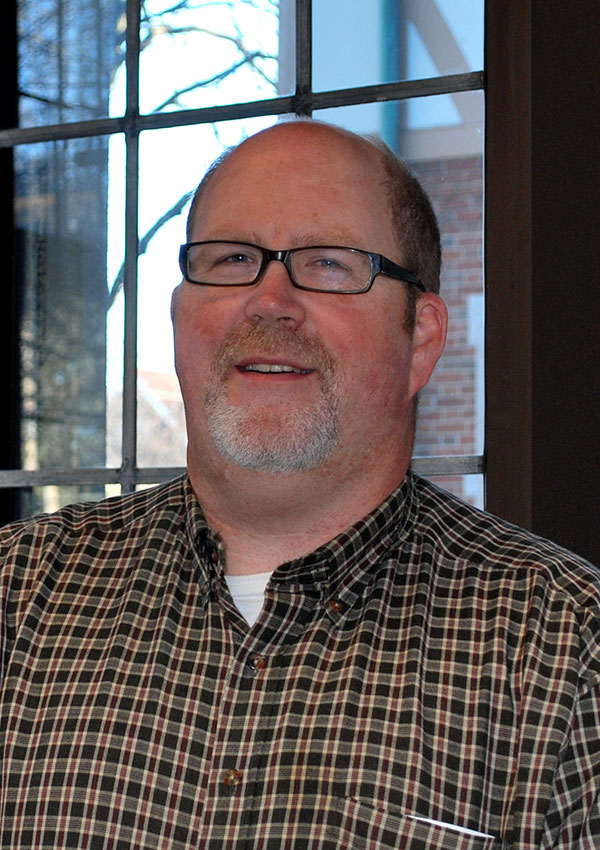 Dr. Davies is recognized as an extraordinary clinician-scientist, with a long history of significant research contributions to the field of pediatric health psychology. No discussion of Dr. Davies’ accomplishments could overlook the striking quantity of peer-rated publications, (142, 54 of which as primary author, with nearly 6000 citations) surrounding psychosocial wellbeing of patients, family members, and care teams, with a focus on pediatric pain care and management. He is known for his insightful and collaborative approach to research and willingness to mentor others (His CV also boasts supervising 32 Senior theses, 26 Masters theses, and 26 Doctoral Dissertations).
Dr. Davies is recognized as an extraordinary clinician-scientist, with a long history of significant research contributions to the field of pediatric health psychology. No discussion of Dr. Davies’ accomplishments could overlook the striking quantity of peer-rated publications, (142, 54 of which as primary author, with nearly 6000 citations) surrounding psychosocial wellbeing of patients, family members, and care teams, with a focus on pediatric pain care and management. He is known for his insightful and collaborative approach to research and willingness to mentor others (His CV also boasts supervising 32 Senior theses, 26 Masters theses, and 26 Doctoral Dissertations).
He has been named a Fellow of both of the major pediatric psychology associations, the Society of Child Clinical and Adolescent Psychology and the Society of Pediatric Psychology. His work has been vital in highlighting the importance of psychological factors in the course and severity of illness, intervention outcomes, and patient-provider communication and is perhaps best summarized by this acclamation: “He is a fantastic researcher, no doubt, but even rarer, he makes those around him exponentially better.”
Laodong Guo, School of Freshwater Sciences
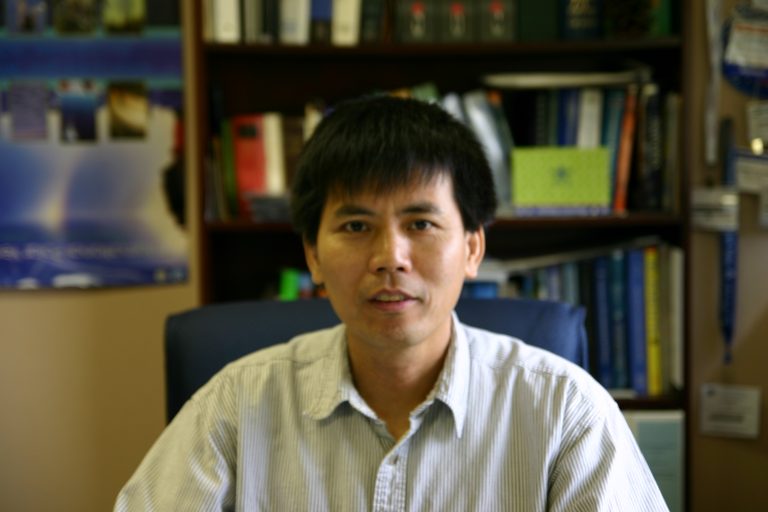
Dr. Laodong Guo is well known within the oceanographic and water science communities as a leading geochemist. He has published over 100 peer-reviewed articles in his last 10 years as a professor at UWM – a staggering quantity in field sciences like oceanography and limnology. His most important work may lie in investigations into microplastics and other modern contaminants’ seepage into endangered biospheres. He has also made major scientific contributions through research in the Arctic, one of the most rapidly warming global regions, with a focus on permafrost, peatlands and arctic river systems. Permafrost contains large amounts of greenhouse gases and organic matter that are subject to major alterations upon warming.
Dr. Guo is recognized as one of the most productive and active members of the School of Freshwater Sciences who continues to pursue new and highly relevant research questions. He has also played a significant role as a mentor, hosting several post doctoral scholars and international visiting scholars and working with dozens of SURF and REU students in his laboratory.
2021-2022 Recipients
David Frick, Department of Chemistry & Biochemistry
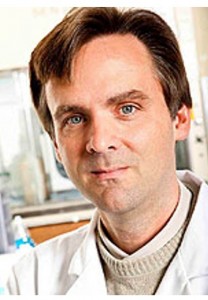 David Frick’s fundamental research on the biochemistry of viral proteins has led to substantial contributions to the understanding of such human diseases as Hepatitis C, Dengue Fever, West Nile Virus, and SARS-CoV-2 (the virus that causes COVID-19), and to drug discovery for their treatment.
David Frick’s fundamental research on the biochemistry of viral proteins has led to substantial contributions to the understanding of such human diseases as Hepatitis C, Dengue Fever, West Nile Virus, and SARS-CoV-2 (the virus that causes COVID-19), and to drug discovery for their treatment.
A prolific publisher, Frick has over 75 publications in highly esteemed peer-reviewed journals, plus countless conference presentations, PubChem BioAssay entries, and invited lectures. Through his NIH, NSF, and internal grant awards, Frick has brought nearly $2.4 million in funding to his department while serving as advisor to post-docs, graduate students, and undergraduates.
His work at UWM is distinguished by his interdisciplinary collaboration, sharing grants and publications with faculty from departments across campus (including Biological Sciences, Physics, and Engineering) and is highly regarded by his peers for his mind for scientific inquiry and collegial persona.
Krista Lisdahl, Department of Psychology
 Krista Lisdahl is a clinical psychologist specializing in the neurocognitive effects of adolescent substance use, and the Milwaukee-site PI of the NIH’s Adolescent Brain Cognitive Development (ABCD) project – the largest multi-site pediatric neuroimaging study of its kind. Lisdahl is nationally recognized as a leader in this field with over 4900 citations from her over 88 peer-reviewed papers (including 31 since 2020 with 12 more in review). Her contributions to the field of neuroscience and substance abuse have garnered her such prestigious awards as the Presidential Early Career Award for Scientists & Engineers (2012), the Nelson Butters Award from the National Academy of Neuropsychology, the National Academy of Science’s Kavli Fellowship, and fellowships from the American Psychological Association’s Society for Clinical Neuropsychology and Society of Addiction Psychology.
Krista Lisdahl is a clinical psychologist specializing in the neurocognitive effects of adolescent substance use, and the Milwaukee-site PI of the NIH’s Adolescent Brain Cognitive Development (ABCD) project – the largest multi-site pediatric neuroimaging study of its kind. Lisdahl is nationally recognized as a leader in this field with over 4900 citations from her over 88 peer-reviewed papers (including 31 since 2020 with 12 more in review). Her contributions to the field of neuroscience and substance abuse have garnered her such prestigious awards as the Presidential Early Career Award for Scientists & Engineers (2012), the Nelson Butters Award from the National Academy of Neuropsychology, the National Academy of Science’s Kavli Fellowship, and fellowships from the American Psychological Association’s Society for Clinical Neuropsychology and Society of Addiction Psychology.
Lisdahl’s work in youth substance use and addiction research incorporates advanced brain imaging techniques, toxicology, and neuropsychological assessment to study the effects of repeated exposure to cannabis, alcohol, nicotine, and ecstasy on adolescent brain development. This field is of increasing interest to researchers given the changing landscape in legalization of cannabis and growing use of e-cigarettes by youth. Lisdahl is further recognized for her teaching and mentoring of doctoral and master’s students, many of whom appear as first author on their co-authored publications.
Previous Recipients
2020-2021
Anne Basting, Department of English
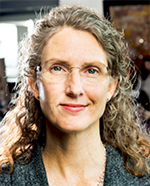 Anne Basting is a scholar and artist whose work focuses on the potential for the arts and humanities to transform our lives as individuals and communities. For over 20 years, Basting has researched ways to infuse the arts into care settings, with a particular focus on people with cognitive disabilities like dementia.
Anne Basting is a scholar and artist whose work focuses on the potential for the arts and humanities to transform our lives as individuals and communities. For over 20 years, Basting has researched ways to infuse the arts into care settings, with a particular focus on people with cognitive disabilities like dementia.
In 1998 she founded the award-winning non-profit TimeSlips Creative Storytelling, an international alliance of artists and caregivers bringing meaning to late life through creativity. TimeSlips has over 900 certified facilitators in 48 states and 20 countries. The aim of creative storytelling, Basting says, is to replace pressure to remember with freedom to remember, imagine, and inspire improvisational expression. In all her work, she is striving toward a moment when meaning-making is fully infused into care systems.
In 2016, Basting became the first MacArthur Fellow at UWM.
She has published many books, articles, and chapters, and the longtime theater professor has also written or produced nearly a dozen plays and public performances, one of which was professionally staged at a long-term care community.
Bonnie Klein-Tasman, Department of Psychology
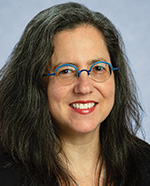 Bonnie Klein-Tasman has earned a national and international reputation for her developmental work on children with rare genetically based neurodevelopmental conditions, particularly Williams syndrome and neurofibromatosis type 1. She takes a sophisticated approach to incorporating projects that capture the interplay of social, neuropsychological, and developmental factors in predicting child outcomes.
Bonnie Klein-Tasman has earned a national and international reputation for her developmental work on children with rare genetically based neurodevelopmental conditions, particularly Williams syndrome and neurofibromatosis type 1. She takes a sophisticated approach to incorporating projects that capture the interplay of social, neuropsychological, and developmental factors in predicting child outcomes.
To collect the large amounts of necessary data from youth who are relatively hard to find in the first place, Klein-Tasman’s team has become very creative about locating and connecting with these families. This data can help identify emerging patterns of specific difficulties at specific developmental periods—valuable information for is unavailable for most genetic conditions.
Klein-Tasman has a strong commitment to training future scientists; she has chaired 13 Ph.D. committees, 13 master’s committees, and eight senior thesis committees.
Grants supporting her research have come from the National Institutes of Health, Williams Syndrome Association, UWM Research Growth Initiative, and many others.
2019-2020
Christine Larson, professor, Department of Psychology
 Recognized as both scientifically rigorous and community engaged, Christine Larson’s collaborative research is dedicated to understanding the neural bases of healthy and pathological emotional processing, as well as predicting risk factors and early warning signs of anxiety-related disorders, such as post-traumatic stress disorder. Her work is further distinguished by her interest in learning about trauma risk factors that are unique to ethnic and racial minority communities.
Recognized as both scientifically rigorous and community engaged, Christine Larson’s collaborative research is dedicated to understanding the neural bases of healthy and pathological emotional processing, as well as predicting risk factors and early warning signs of anxiety-related disorders, such as post-traumatic stress disorder. Her work is further distinguished by her interest in learning about trauma risk factors that are unique to ethnic and racial minority communities.
One of the biggest challenges in trauma research is identifying recent victims of trauma, which Larson achieved through a partnership with Froedtert Hospital, where victims are sent almost immediately after a violent incident or other event resulting in traumatic injury. That partnership grew into the Milwaukee Trauma Outcomes Project, a regional consortium co-founded by Larson dedicated to improving the lives of those affected by trauma through research, intervention, prevention, education and outreach.
Larson’s innovative approaches have attracted more than $10 million in research funding — more than $7 million as principal investigator — including several R01 grants from agencies such as the National Institute of Mental Health, as well as three UWM Research Growth Initiative awards.
Scott Strath, professor, Department of Kinesiology
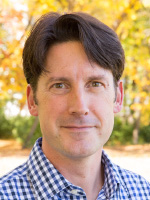 As director of the Center for Aging and Translational Research, Strath and his research team focus on the intersection between physical activity and public health. Specific research interests include the relationship between physical activity and cardiovascular health; physical activity interventions and promotional strategies; physical activity assessment; community and national physical activity patterns; and environmental determinants of physical activity behavior.
As director of the Center for Aging and Translational Research, Strath and his research team focus on the intersection between physical activity and public health. Specific research interests include the relationship between physical activity and cardiovascular health; physical activity interventions and promotional strategies; physical activity assessment; community and national physical activity patterns; and environmental determinants of physical activity behavior.
He has held continual National Institutes of Health funding since 2005, with his latest $3.1 million grant received in 2017. The focus of that grant is to develop new machine learning algorithms for use in wearable technology, ultimately to better assess physical activity behaviors in adults with and without functional movement disorders. This includes adults who have arthritis, multiple sclerosis or Parkinson’s disease or have had a stroke.
Strath continues to work on projects to increase the awareness of the benefits of physical activity and regularly works with the community on promoting the use of available community resources to help seniors increase their physical activity, strength and physical function and maintain their community independence.
A colleague wrote that Strath’s achievements exemplify scholarship at its best and are a credit to him and to the university.
Strath holds affiliate appointments with the Medical College of Wisconsin, as well as the University of Wisconsin-Madison.
Lindsay McHenry, professor, Department of Geosciences
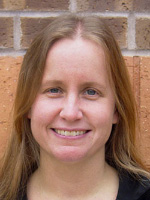 Lindsay McHenry is unraveling the remarkable history of hominid sites in Tanzania. Her analysis and dating of volcanic ash preserved within sedimentary layers at Olduvai Gorge and other important archaeological sites has yielded a robust chronology for the region’s fossils and stone tools associated with human evolution. Her meticulous field and laboratory work has helped unite scientists who previously had conflicting hypotheses on the evolution and behavior of early hominins.
Lindsay McHenry is unraveling the remarkable history of hominid sites in Tanzania. Her analysis and dating of volcanic ash preserved within sedimentary layers at Olduvai Gorge and other important archaeological sites has yielded a robust chronology for the region’s fossils and stone tools associated with human evolution. Her meticulous field and laboratory work has helped unite scientists who previously had conflicting hypotheses on the evolution and behavior of early hominins.
McHenry’s research has focused on analyzing volcanic ash preserved within sedimentary layers at such important archaeological sites. Studying the ash within the layers can create frameworks to look at important evolutionary and cultural changes throughout a region.
She also studies Mars geology, looking at the minerals, sediments and geochemistry of the Martian surface, particularly how altered volcanic and sulfate materials may relate to places on Earth where materials have formed under similar conditions.
McHenry has attracted more than $4.1 million in research funding, more than 85% of that as principal investigator.
2018-2019
Jolien Creighton, Professor, Physics
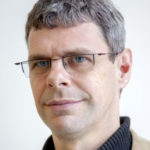 Jolien Creighton wrote the software that helped the LIGO Scientific Collaboration make sense of the huge amount of gravitational wave data produced by the merging of two black holes in 2015 and the collisions of neutron stars in 2017 and 2019. This and other work has established him as a leader in developing and applying data-analysis methodologies.
Jolien Creighton wrote the software that helped the LIGO Scientific Collaboration make sense of the huge amount of gravitational wave data produced by the merging of two black holes in 2015 and the collisions of neutron stars in 2017 and 2019. This and other work has established him as a leader in developing and applying data-analysis methodologies.
Recognition for his LIGO work includes a share of the 2016 Breakthrough Prize in Fundamental Physics and a 2017 appointment as a fellow of the American Physical Society. He is also co-chair of the LIGO Compact Binary Coalescence working group.
Alan Jay Weinstein, who leads the LIGO Astrophysics and Data Analysis Group at the California Institute of Technology, cites Creighton’s “impressively large, broad, deep, and important set of contributions to gravitational wave science,” adding, “I consider him to be one of the most influential and highly respected researchers in our field.”
Creighton was also lead author on a 2011 graduate-level textbook, Gravitational-Wave Physics and Astronomy: An Introduction to Theory, Experiment and Data Analysis, which has become a standard resource in the field.
He has attracted more than $4 million in funding from the National Science Foundation as PI, and more than $8 million as co-investigator.Creighton’s more than 180 refereed publications have been cited more than 27,000 times in the scientific literature.
Ivy Lingqian Hu, Professor, Urban Planning
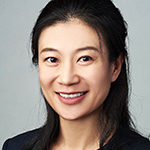 Ivy Lingqian Hu’s broad research expertise—transportation planning and policy, land use, and urban economics, among others—stems from her professional as well as academic experience. Before coming to UWM in 2010, she was an urban planner at the China Academy of Urban Planning and Design and a regional planner for the Southern California Association of Governments.
Ivy Lingqian Hu’s broad research expertise—transportation planning and policy, land use, and urban economics, among others—stems from her professional as well as academic experience. Before coming to UWM in 2010, she was an urban planner at the China Academy of Urban Planning and Design and a regional planner for the Southern California Association of Governments.
Hu is particularly interested in the interrelationship between transportation and land use, and the spatial, social and environmental impacts of transportation planning. Through her research, she works to promote sustainable and prosperous communities, reduce vehicle miles travelled (VMT) and emissions, and enhance environmental justice and public health.
Hu gained tenure in 2015 and was a full professor just three years later. Nancy Frank, UWM associate professor of urban planning and interim dean of the School of Architecture and Urban Planning recalls, “In that short time, Professor Hu had established herself both nationally and internationally as a leading scholar in the field of regional location dynamics and transportation.”Qing Shen, former chair of the Department of Urban Design and Planning at the University of Washington, considers Hu “among the most prolific urban planning researchers in her generation.”
“She has set a superb example for others,” Shen continues, “by being highly motivated and productive as a researcher and highly active and willing to serve as a citizen and a leader of the academic community.”
2017-2018
Rebecca Dunham, Professor, English
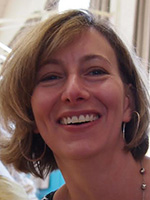 As described by her UWM colleague George Clark, the poems of Rebecca Dunham “bear witness to social injustice, ecological disaster and the human experience.”
As described by her UWM colleague George Clark, the poems of Rebecca Dunham “bear witness to social injustice, ecological disaster and the human experience.”
In her widely acclaimed book Cold Pastoral, Dunham traces the 2010 Deepwater Horizon oil rig explosion, Hurricane Katrina and the Flint water crisis. Initially funded by a $40,000 UWM RGI award in 2011, Cold Pastoral has been declared one of “40 New Feminist Classics You Should Read” by prominent literary website The Literary Hub. The Colorado Review calls it “a coalescence among artistic purpose, beauty on earth, and the realization of one’s own mortality.”
Her numerous distinctions and honors include the prestigious T.S. Eliot Prize for her 2006 dissertation—a book titled “The Miniature Room”—and a National Endowment for the Arts Literature Fellowship in Poetry in 2007, the year she began at UWM. Her forthcoming book, Strike, has earned the Editor’s Choice Award from its publisher, New Issues Press.
Sandra McLellan, Professor, Freshwater Sciences
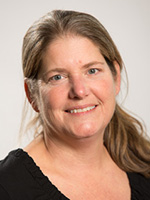 Sandra McLellan’s lab explores the links between environmental processes and human health. She has applied next-generation molecular and genomic tools to characterize microbiomes, which are essentially the ecosystems created by microorganisms, in humans and animals as well as water in beaches and sewer systems.
Sandra McLellan’s lab explores the links between environmental processes and human health. She has applied next-generation molecular and genomic tools to characterize microbiomes, which are essentially the ecosystems created by microorganisms, in humans and animals as well as water in beaches and sewer systems.
The new information gleaned by this research has enabled her to identify human and animal sources of waterborne pollutants and pathogens. She captured international attention when she and her colleagues found they could monitor the health of the population of a hospital or city by analyzing the microorganisms in raw sewage.
McLellan may be best known locally for identifying sources of E. coli—the main culprit in beach closings. As her School of Freshwater Sciences colleague Ryan Newton observes, “Her work was a primary reason Bradford Beach transformed into a city asset and destination.” She is now focusing on the troubled South Shore Beach.
She is also recognized as a student mentor and advocate for educating the public about science and its role in public policy. Her lab members include postdoctoral scholars, graduate and undergraduate students and research specialists.
2016-2017
Karyn Frick, Professor, Psychology
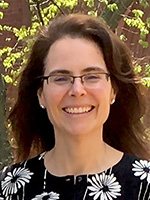 For half of the human population, Karyn Frick’s research is of particular importance. Alzheimer’s disease affects women far more often than men. Frick’s work has found evidence that plunging levels of estrogen in menopause is part of the reason.
For half of the human population, Karyn Frick’s research is of particular importance. Alzheimer’s disease affects women far more often than men. Frick’s work has found evidence that plunging levels of estrogen in menopause is part of the reason.
“Karyn Frick is considered a global expert on how estrogen hormones affect memory,” said Joanne Berger-Sweeney, president and professor of neuroscience at Trinity College. “Her contributions to the field span molecular underpinnings to behavioral influences.”
Frick has had an extremely impressive record of grant funding in a low-funding environment. She currently serves as principal investigator or co-investigator on four extramural and two intramural research awards, totaling close to $4.6 million.
Recently elected as a Fellow of the American Psychological Association, Frick is compiling and editing a book that will become the standard reference for the role of estrogens in cognitive functioning—a project she was asked to lead by several publishers acting independently.
Through her teaching and mentorship, she has inspired hundreds of trainees, particularly women and minorities, to pursue careers in neuroscience.
Josepha Lanters, Professor, English
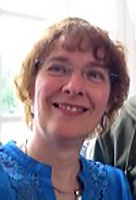 Josepha Lanters has developed an international reputation as a scholar of modern and contemporary Irish drama, Irish satire and contemporary Irish culture. She is the author of four books and more than 80 scholarly articles and book reviews.
Josepha Lanters has developed an international reputation as a scholar of modern and contemporary Irish drama, Irish satire and contemporary Irish culture. She is the author of four books and more than 80 scholarly articles and book reviews.
Early in her career, Lanters published two acclaimed books on Irish drama: “Missed Understandings: A Study of Stage Adaptations of the Works of James Joyce” and “Unauthorized Versions: Irish Menippean Satire, 1919-1952.”
Most recently, she is the author of the forthcoming “The Theatre of Thomas Kilroy: No Absolutes” (Cork University Press).
Lanters’ 2008 monograph, “The ‘Tinkers’ in Irish Literature: Unsettled Subjects and the Construction of Difference,” has been praised for its examination of the role of tinkers in Irish literature, but also as an ethnographic examination of a marginalized caste of Irish people. Eamonn Wall, Smurfit-Stone Professor of Irish Studies and professor of English at the University of Missouri-St. Louis, favorably compared the book to Edward Said’s “Orientalism,” a classic critique of western views of Asia. “Lanters, like Said before her, probes literary works and how they have been read to reveal their deeper, hidden truths.”
Marius Schmidt, Professor, Physics
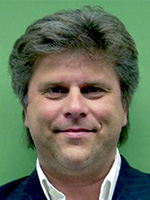 Marius Schmidt is using physical methods to investigate the structural dynamics of biological molecules, primarily proteins. He has advanced an imaging technique called time-resolved macromolecular crystallography to femtosecond resolution. At a rate of 10 trillion frames per second, his ultra-slow motion movies have captured a biological process fundamental to vision known as trans to cis isomerization, which involves the transformation of a molecule into another one with the same atoms, but in a different arrangement.
Marius Schmidt is using physical methods to investigate the structural dynamics of biological molecules, primarily proteins. He has advanced an imaging technique called time-resolved macromolecular crystallography to femtosecond resolution. At a rate of 10 trillion frames per second, his ultra-slow motion movies have captured a biological process fundamental to vision known as trans to cis isomerization, which involves the transformation of a molecule into another one with the same atoms, but in a different arrangement.
As Arizona State University physics Professor John Spence says of Schmidt’s work, “To make a movie of a protein absorbing a photon is a truly remarkable achievement.”
Schmidt has created the movies using the world’s most powerful X-ray laser beam, the Linac Coherent Light Source, housed within the SLAC National Accelerator Laboratory at Stanford University. He is a major player in BioXFEL, a National Science Foundation Science and Technology Center that uses this X-ray laser to image proteins to determine their biological structure.
Beginning with his nearly $900,000 NSF CAREER Award in 2010, Schmidt has attracted over $6 million in external funding, and 300,000 Euros, as a principal or co-principal investigator.
Ching-Hong Yang, Professor, Biological Sciences
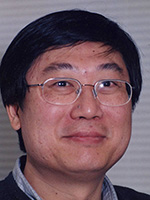 Ching-Hong Yang has made many significant research contributions to unraveling how bacteria can cause diseases in plants, and he has developed novel methods to manage those diseases.
Ching-Hong Yang has made many significant research contributions to unraveling how bacteria can cause diseases in plants, and he has developed novel methods to manage those diseases.
His discoveries in studying the microbial populations of the phyllosphere (leaf surfaces) have changed the way we looked at the phyllosphere. It was a microbiome study before the advent of widespread microbiome research.
Yang has identified the mechanism of virulence in many bacterial pathogens and is developing strategies to inhibit it.
“His work opened the door to a realization that these pathogens also use ‘stealth’ components to initiate disease and suppress plant defense responses prior to unveiling the big guns of degrading enzymes,” said James Borneman, a professor of microbiology at the University of California, Riverside.
Yang’s research on virulence has shown promise as an alternative to antibiotic use in agriculture. In 2013, he co-founded a startup company that is trying to capitalize on this basic research. The investors in this company have provided follow-on funding to UWM for additional research on his work.
View Older Awards
2015-2016
Janis Eells, Professor, Biomedical Sciences
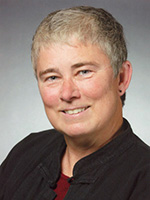 Janis Eells has an internationally recognized research program directed at understanding how cell mitochondria regulate the processes of aging and degeneration in the retina.
Janis Eells has an internationally recognized research program directed at understanding how cell mitochondria regulate the processes of aging and degeneration in the retina.
From 2004 to 2009, she held a Wisconsin Distinguished Professorship, an honor bestowed by the UW System to recognize researchers whose work had the potential to boost Wisconsin’s economy and who were nationally recognized in their field. Eells’s research has brought in more than $2 million from sources such as the National Institutes of Health, Foundation Fighting Blindness and American Heart Association. Her collaborative research endeavors have totaled more than $15 million.
She also has taken her knowledge outside the university, advising pharmaceutical firms such as Alcon Laboratories; medical facilities such as the Dean Clinic; and firms that make near-infrared light devices used for healing wounds, including LumiThera Inc. Her expertise in toxicology has been sought by organizations, such as the Environmental Protection Agency and the World Health Organization.
Mark McBride, Professor, Biological Sciences
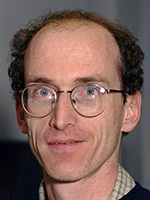 Most bacteria move around with a whip-like flagellum that propels them in a way that’s similar to an outboard motor. Mark McBride has made seminal contributions in the study of how bacteria move when they don’t have a flagellum.
Most bacteria move around with a whip-like flagellum that propels them in a way that’s similar to an outboard motor. Mark McBride has made seminal contributions in the study of how bacteria move when they don’t have a flagellum.
He developed tools to study the genes of a specific bacterium that glides over surfaces. Using these, McBride has uncovered the mechanism of its motility and, in the process, discovered a new type of protein secretion system in bacteria. His tools are now in high demand because many bacteria that move in this fashion are part of the human microbiome that inhabits our gut, and are therefore critical for human health.
McBride also collaborates with scientists at the USDA at the UWM School of Freshwater Sciences to study the gliding bacteria that cause a disease common in fish raised in aquaculture.
“Many laboratories now build research on his discoveries,” said Tâm Mignot of Aix Marseille University in France.
2014-2015
Ryoichi Amano, Professor, Mechanical Engineering
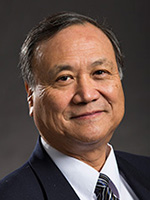 Amano is an established leader in the fields of turbo-machinery, aerospace and energy systems for power systems.
Amano is an established leader in the fields of turbo-machinery, aerospace and energy systems for power systems.
He has worked on high-profile aerospace propulsion engineering projects, including the Aerojet engine at NASA’s Glenn Research Center (GRC); the gas turbine engine for Raptor at Wright-Patterson Air Force Base; and solid booster rocket engine research at the Air Force Research Lab at Edwards Air Force Base.
Amano’s research has captured the attention of many federal agencies and large companies, such as NASA, the U.S. Army, Toshiba and Hitachi.
In the energy field, some of his research has been used by Tokyo Electric Power Company in the construction of new power plants. Other work has developed a process to help power plants reduce harmful emissions.
“Heat transfer and fluid flow are amongst the key issues of great importance to R&D engineers for sustainable energy systems,” wrote Ashwani K. Gupta, distinguished university professor at the University of Maryland. “Professor Amano is an international authority in his field on modeling with focus on applications to power industry. His work on wind energy is well-recognized.”
Carol Hirschmugl, Professor, Physics
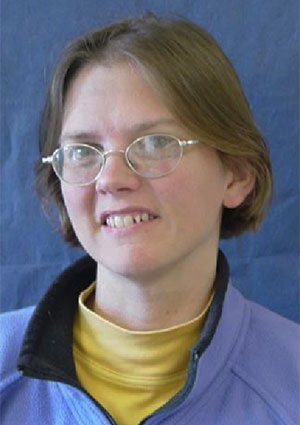 Hirschmugl’s approach to experimenting with infrared imaging at diffraction limit has made it possible to observe previously hidden surface structures.
Hirschmugl’s approach to experimenting with infrared imaging at diffraction limit has made it possible to observe previously hidden surface structures.
She developed a specialized microscope that uses the ultra-bright, infrared light generated by synchrotron radiation to reveal high-quality chemical images of cellular and subcellular interactions.
This instrument has been sought by collaborators worldwide, including groups from Canada and Germany.
“She has been invited to various national laboratories and universities in the U.S. and Europe to jump-start infrared spectroscopy efforts there,” wrote F.J. Himpsel, physics professor emeritus at UW-Madison. These have included the Pacific Northwest National Laboratory, Yale University and the European Synchrotron Light Source workshop.
Some of her most recent work has been in extending imaging to three dimensions, which has made it possible to form chemical maps of protein and lipid structures in stem cells.
“Carol is a truly exceptional physicist who has advanced her career by a combination of ability, determination and focus, while excelling at every phase,” wrote Gwyn Williams, deputy division head at the Thomas Jefferson National Accelerator Facility near Newport News, Virginia.
Reinhold Hutz, Professor, Biological Sciences
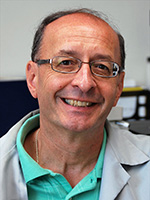 The research of Hutz has furthered the knowledge of reproductive technologies for people.
The research of Hutz has furthered the knowledge of reproductive technologies for people.
Renowned for his study in the reproduction of non-human primates, Hutz has combined several disciplines within the biological sciences that focus on reproduction. His work led to the development of in vitro fertilization techniques used to treat infertility in humans.
“Reinhold is a fantastic colleague; he is collaborative, collegial and has an impeccable reputation,” said Francesco J. DeMayo, professor of molecular and cellular biology at the Baylor College of Medicine.
Hutz is also an expert in the study of reproductive toxicology, investigating contaminants called endocrine disruptors, chemicals, which even in trace amounts, confuse the messaging system of the body’s hormones.
“He has had a truly impressive and productive scientific career,” wrote Robert Tanguay, distinguished professor of Environmental and Molecular Toxicology at Oregon State University.
Hutz’s career has also included multiple levels of service to UWM. In his nearly 30 years here, he has served as an interim associate dean for research in the Graduate School, Graduate Program director and co-director of the Natural Science Divisional Committee.
Fatemeh Zahedi, Professor, Business
 Zahedi has proven herself to be a distinguished scholar in the field of information systems.
Zahedi has proven herself to be a distinguished scholar in the field of information systems.
Much of Zahedi’s work has been in the cutting-edge technology that includes social networks, cyber security and artificial intelligence. Her theoretical and empirical research focuses not only advancing technologies, but also on issues individuals encounter in using information technology and the ways to enhance their lives through the technology.
She has investigated both the negative side of information systems, such as security violations and privacy concerns, and also the valuable aspects, such as green advances and applications that improve health care.
In 22 years at UWM, Zahedi has held several prestigious positions—Wisconsin Distinguished Professor, Trisept Solutions Professor, James R. Mueller Distinguished Professor and her current role as the Roger L. Fitzsimonds Distinguished Scholar.
“She has elevated the profile of UW-Milwaukee in the information systems and business administration communities through her many excellent contributions,” wrote Izak Benbasat, distinguished professor of information systems at the University of British Columbia.
Zahedi has also brought her research to the community, working to share technology knowledge with minority and women entrepreneurs.
2013-2014
Junhong Chen, Professor, Mechanical Engineering
 Junhong Chen’s research projects are at the intersection of interesting fundamental science and industrial applications. In the College of Engineering and Applied Science, Chen is professor of both Mechanical Engineering and Materials Science and Engineering, and an Excellence in Engineering Faculty Fellow in Nanotechnology. His research focuses on nanomaterial innovations for sustainable energy and environment.
Junhong Chen’s research projects are at the intersection of interesting fundamental science and industrial applications. In the College of Engineering and Applied Science, Chen is professor of both Mechanical Engineering and Materials Science and Engineering, and an Excellence in Engineering Faculty Fellow in Nanotechnology. His research focuses on nanomaterial innovations for sustainable energy and environment.
Dr. Chen has invented a dry technique to efficiently and effectively assemble nanocrystals onto carbon nanotubes (CNTs) and graphene-based materials. The resulting structures could enable numerous new opportunities for nanoscience and advanced applications in biosensors, gas sensors, water sensors, solar cells, nanoelectronics, catalysis, and nanomanufacturing.
In 2011 he founded NanoAffix Science to commercialize nanotechnologies invented in his UWM lab.
Chen is currently director of the Water Equipment and Policy Research Center, one of many industry-university partnership funded by the National Science Foundation.
College of Engineering and Applied Science dean and Mechanical Engineering colleague Tien-Chien Jen calls Chen “a star faculty on the UWM campus” who has “demonstrated an extremely high level of excellence in both research and entrepreneurship during his post at UWM. “In addition to grants from the NSF, Chen receives funding from the U.S. Department of Energy and industries including Xerox, Johnson Controls, We Energies, Rockwell Automation, and Sigma Aldrich.
Thomas Holbrook, Professor, Political Science
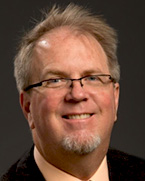 Thomas Holbrook is a renowned scholar of American politics, whose work has focused on various aspects of political behavior, campaigns and elections, and voting behavior. His articles, which include analyses at both the state and national levels, have been cited more than 2,400 times, a strong testament to the significant impact of his work on his field.
Thomas Holbrook is a renowned scholar of American politics, whose work has focused on various aspects of political behavior, campaigns and elections, and voting behavior. His articles, which include analyses at both the state and national levels, have been cited more than 2,400 times, a strong testament to the significant impact of his work on his field.
On the faculty at UWM since 1989, Holbrook is the chair and Wilder-Crane Professor of Government in the Department of Political Science. He has served as editor of the journal American Politics Research and on the editorial boards of American Journal of Political Science, American Politics Quarterly, American Politics Research, and State Politics and Policy Quarterly.
He is former director of the UWM Undergraduate Laboratory for the Empirical Analysis of Politics (ULEAP).James Garand, the Emogene Pliner Distinguished Professor and R. Downs Poindexter Professor at Louisiana State University, calls Holbrook “an outstanding scholar who is a major contributor to scholarship that furthers our understanding of American politics.”
He has attracted over $500,000 in federal funding from the National Science Foundation—an impressive total for a social science researcher—and more than $200,000 in UWM Research Growth Initiative® grants.
Lian Li, Professor, Physics
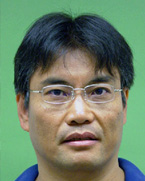 Lian Li has an active and highly regarded research program focused on the study of the electronic and structural properties of exotic materials such as graphene and topological insulators. What he is learning about graphene—a single later of carbon atoms—are important pieces of a puzzle that may unlock graphene’s potential as a material for next-generation electronics and quantum computing.
Lian Li has an active and highly regarded research program focused on the study of the electronic and structural properties of exotic materials such as graphene and topological insulators. What he is learning about graphene—a single later of carbon atoms—are important pieces of a puzzle that may unlock graphene’s potential as a material for next-generation electronics and quantum computing.
Experimental physicists in this field typically either specialize in growing a material or use a specific advanced characterization technique to investigate that material’s physical properties, notes Michael Weinert, Physics Department chair and UWM Distinguished Professor. He continues, “Lian is one of only a small number of people worldwide that actually does—and excels in—both aspects.”
Li has received continuous funding for his work from the National Science Foundation and the U.S. Department of Energy since 2003. He has attracted over $4 million in federal funds in a highly competitive field. This achievement is even more impressive, Weinert says, given that applicants to the programs that fund him have just a 10 percent success rate.
Professor Li is also a previous recipient of the prestigious NSF CAREER Award, the Office of Research/UWM Foundation Research Award, and the UWM Research Committee Award.
Roger O. Smith, Professor, Occupational Therapy
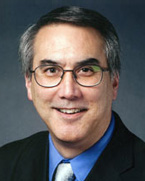 Roger O. Smith has made a career-long commitment to advancing the field of rehabilitation science. Since arriving at UWM in 1994, Smith has made extraordinary contributions to the understanding of individuals with disabilities and strategies to improve their participation in daily activities.
Roger O. Smith has made a career-long commitment to advancing the field of rehabilitation science. Since arriving at UWM in 1994, Smith has made extraordinary contributions to the understanding of individuals with disabilities and strategies to improve their participation in daily activities.
His wide-ranging academic background in occupational therapy, engineering, and the social sciences has led to a research program that has been recognized nationally and internationally. His establishment in 2001 and successful management of the UWM Rehabilitation Research Design and Disability (R2D2) Center has resulted in a self-sustaining research center that brings together top scholars—from the College of Health Sciences, across the university, and throughout the broader research community—to answer some of the most complex problems facing the field of disability research.
Professor Carol Haertlein Sells, a longtime colleague in the UWM College of Health Sciences, calls Smith “one of the most innovative thinkers in our profession who has been sought out by international colleagues to advance their understanding of these critical topics.”
Smith has attracted 32 grants totaling over $9.5 million from sources including the U.S. Department of Education, the National Institute of Disability and Rehabilitation Research, and the Wisconsin Department of Health Services.
2012-2013
Fred Helmstetter, Professor, Psychology
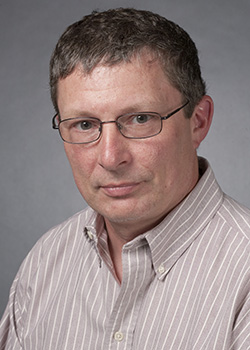 Fred Helmstetter is among the world’s leading researchers studying how the brain works, focusing on the brain’s fundamental mechanisms of encoding and storing memory. Through experiments on rats and humans, he has advanced our understanding of the neural systems that support complex psychological phenomena such as learning, memory, and emotion. He has also shown new ways that experience and learning can modify the structure and function of the nervous system.
Fred Helmstetter is among the world’s leading researchers studying how the brain works, focusing on the brain’s fundamental mechanisms of encoding and storing memory. Through experiments on rats and humans, he has advanced our understanding of the neural systems that support complex psychological phenomena such as learning, memory, and emotion. He has also shown new ways that experience and learning can modify the structure and function of the nervous system.
Psychology Department Chair Douglas Woods credits Helmstetter’s “planning, vision, and dogged support of excellence” for the tremendous growth of the department’s research productivity over the last 15 years.
Michael Fanselow, co-director of the UCLA Integrative Center for Learning and Memory, writes, “I can think of few people that have had such a broad impact” on our understanding of learning and memory.
Helmstetter’s nearly $5 million in funded research since 2002-2003 ranks 10th among all UWM researchers during that time. His internal funding has also been impressive, including two RGI grants as principal investigator and four as co-investigator, as well as a collaboration on a 2010 Intercampus Research Incentive Grant.
Among the 17 Ph.D. students Helmstetter has supervised, five have earned prestigious NIH National Research Service Award training fellowships.
Helmstetter’s publications include over 80 peer reviewed articles and book chapters and over 170 published abstracts.
James Peoples, Professor, Economics
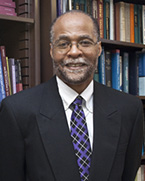 James Peoples—whose broad research interests fall within the economics of transportation systems and labor markets—may be best known outside academe for studies of public transportation labor and infrastructure issues.
James Peoples—whose broad research interests fall within the economics of transportation systems and labor markets—may be best known outside academe for studies of public transportation labor and infrastructure issues.
In 2010 testimony before the President’s Council of Economic Advisers, Peoples presented research revealing the importance of greater investment in public transit as a complement to a comprehensive jobs program. He testified that public-transportation projects make the most substantial economic impact on jobs and improved transportation systems. The White House again invited Peoples in 2012 for a meeting on African Americans, jobs and the economy. UWM Distinguished Professor of Economics Moshen Bahmani-Oskooee has cited People’s “tireless work ethic and admirable innovativeness” and “prolific and consistent output.” In addition to 38 refereed journal articles, he has written 10 book chapters and three encyclopedia entries, edited four books, and made 42 conference presentations.
Peoples is editor of the Advances in Airline Economics series, associate editor of the Review of Black Political Economy, editorial board member of the journal Transport Policy, and president of the Transportation and Public Utilities Group
Bahmani-Oskooee concludes, “His passion for research and interest in sharing that passion with others has contributed to him becoming a central figure in the research reputation of the department of economics at UWM.”
Robin Pickering-Iazzi, Professor, Italian
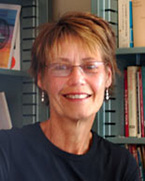 Robin Pickering-Iazzi is internationally recognized as one of the top scholars in modern and contemporary Italian studies. Her many areas of inquiry include Italian literature and film, feminist theory, gender studies, and cultural studies.
Robin Pickering-Iazzi is internationally recognized as one of the top scholars in modern and contemporary Italian studies. Her many areas of inquiry include Italian literature and film, feminist theory, gender studies, and cultural studies.
Her groundbreaking research on Italian women during Fascism has revealed important contributors to Italian literature and culture, in contrast to the stereotype of obedient, submissive mothers.
Pickering-Iazzi’s examination of portrayals and realities of the Italian Mafia and criminality are so pioneering that her undergraduate Mafia course premiered years before the first such course appeared in Italy in 2004.
Dana Renga, assistant professor of Italian at Ohio State University, writes, “I can think of no one working in the fields of Nineteenth, Twentieth, and Twenty-First century Italian literature, film, and cultural studies more deserving of [this award].”
Her scholarly productivity—including books, edited collections, translations, and journal articles—has remained high, even with heavy teaching loads and her role as Italian program coordinator. Since she took on the role in 2000, the number of Italian majors has increased almost tenfold.
In addition to Pickering-Iazzi’s numerous UWM awards—including two fellowships at the former Center for 20th Century Studies—she has also been funded by the Italian National Research Council.
2011-2012
Kathleen Dolan, Professor, Political Science
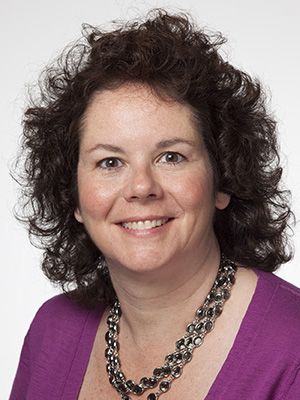 UWM political scientist Kathleen Dolan is a leading scholar on the impact of gender on American politics. She has made important contributions to our understanding of voting behavior and public opinion, gaining a national and international reputation in the process.
UWM political scientist Kathleen Dolan is a leading scholar on the impact of gender on American politics. She has made important contributions to our understanding of voting behavior and public opinion, gaining a national and international reputation in the process.
Dolan currently is funded by the National Science Foundation to examine the impact of voter stereotypes on support for female candidates in gubernatorial and congressional races. She has nearly completed her second book, Does Gender Matter in Elections? The book explores whether voters employ gender stereotypes when evaluating women candidates and discusses the role of candidates’ campaign decisions and the media’s reporting decisions.
Dolan’s work often elicits strong reactions from journalists, commentators and members of the general public, but UWM colleague Marcus Ethridge says she “addresses them through rigorous empirical analysis, using sound statistical skills to shed light on the ways gender stereotyping affects public opinion and on the different choices men and women make in the voting booth. [Dolan’s] work has corrected false presumptions and clarified important insights.
“Her work has been published in the American Journal of Political Science, the Journal of Politics, and other top journals. Colleagues praise Dolan for her involvement in professional associations, service on committees and boards, and editorships.
Martha Carlin, Professor, History
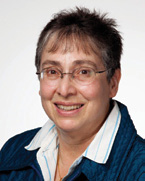 Much of what is known about everyday life in medieval England is a result of the tireless work of UWM history professor Martha Carlin, whom one nominator calls “the most knowledgeable scholar in the English-speaking world on the subject of how medieval urban householders fed and clothed themselves.”
Much of what is known about everyday life in medieval England is a result of the tireless work of UWM history professor Martha Carlin, whom one nominator calls “the most knowledgeable scholar in the English-speaking world on the subject of how medieval urban householders fed and clothed themselves.”
Her focus on social, economic and urban history has produced highly regarded books. In Medieval Southwark (1996), she traced the urban development of London’s first suburb from the year 50 to 1550. In London and Southwark Inventories 1316-1650 (1997), she cataloged from obscure legal documents more than 1,900 surviving inventories that shed light on the personal property of medieval and early modern debtors.
In all, Carlin has seven published or forthcoming books to her credit, as well as 26 articles, 16 book reviews, and more than 50 conference presentations and lectures. Her efforts were recognized with her 1996 election as a Fellow of the Royal Historical Society in London.
Carlin’s exhaustive research in European libraries and archives has been funded in part by 11 travel awards from the Graduate School since 1995. Other UWM awards include a 1991 Graduate School Research Committee Award and a 1998 Graduate School (now Office of Research)/ UWM Foundation Research Award.
Hugo Lopez, Professor, Materials Engineering
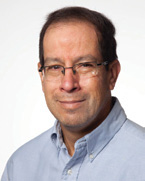 Hugo Lopez is widely known in the academic and research community for his work in developing advanced engineering materials.
Hugo Lopez is widely known in the academic and research community for his work in developing advanced engineering materials.
He has been at the forefront in the development of cobalt alloys with important applications in improving biomedical devices such as hip implants. His advances developing aluminum alloys and nodular irons have helped solve engineering challenges in the manufacture of engine blocks, heads and crankshafts for General Motors and Chrysler.
Lopez has published more than 200 articles and conference papers, which have been cited more than 600 times in scientific literature.
Tien-Chien Jen, mechanical engineering professor and former UWM College of Engineering and Applied Science interim dean, calls Lopez “a recognized leader in the development of cobalt-based alloys with enhanced properties for applications in the biomedical field.”
Last year Lopez was named a level-three member of the prestigious Mexican National System of Research Scientists. This year he was awarded the 2012 British Foundry Medal and Prize. Also, he is the founding editor-in-chief of the open-access journal Metals, established in 2011.Lopez has been primary or co-investigator on 20 grants, contracts and research awards, as well as founder and organizer of a 2011 international welding symposium and organizer of the World Casting Congress earlier this year.
2010-2011
Dennis W. Bennett, Professor, Chemistry and Biochemistry
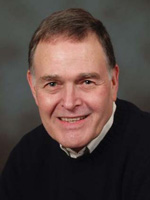 Dennis Bennett’s research explores the structures and bonding of molecules within crystals, and how these molecules are affected by differences in electron charge density. Among his accomplishments in the field of crystallography is revealing the complex decomposition process of sulfur-oxygen compounds, which had stumped other researchers.
Dennis Bennett’s research explores the structures and bonding of molecules within crystals, and how these molecules are affected by differences in electron charge density. Among his accomplishments in the field of crystallography is revealing the complex decomposition process of sulfur-oxygen compounds, which had stumped other researchers.
Bennett last year completed a textbook titled Understanding Single Crystal X-ray Crystallography. Joseph Ferrara, a vice president at the Molecular Structure Corporation, writes, “If I were to teach a course in small molecule crystallography, this is the book I would use…. I can honestly say I wish I had this book when I was in school.”
Bennett also has written a widely used molecular graphics program called MolXtl. His collaboration beginning in the 1980s with UWM Professor James Otvos—developing methods for blood analysis, primarily determining “good” and “bad” cholesterol levels—led to the formation in 1994 of the diagnostic company today known as LipoScience.
Bennett has written more than 130 published articles and five book chapters.
Patrick R. Brady, Professor, Physics
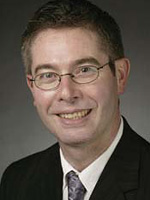 For Patrick Brady, this UWM Research Foundation Senior Faculty Award is just one more of the many accolades he has received for his outstanding work on black holes and the search for gravitational waves.
For Patrick Brady, this UWM Research Foundation Senior Faculty Award is just one more of the many accolades he has received for his outstanding work on black holes and the search for gravitational waves.
While achieving full professorship after just eight years at UWM, Brady has been recognized with prestigious awards from the Sloan Foundation, the Research Corporation for Science Advancement and the UWM Graduate School. Perhaps most notable is his 2010 election as a fellow of the American Physical Society, an honor earned by no more than half a percent of society members annually.
In a support letter for the APS fellowship, one reviewer wrote that Brady “is in every way a perfect gem, guaranteed to bring life, enthusiasm and the highest standards of scholarship to any group lucky enough to get him.”
At UWM, Brady directs the Center for Gravitation and Cosmology, one of the most prominent such centers worldwide, and he plays a leading role in the LIGO Scientific Collaboration, whose ambitious goal is to establish gravitational-wave astronomy.
Sandra Braman, Professor, Communication
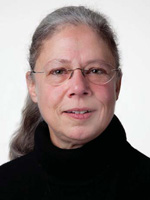 Sandra Braman’s research focuses on information policy and its impact on society, law and technology. She is author or co-editor of a number of books in the area, as well as four special journal issues. She has written numerous articles in the top journals of the communication and information fields.
Sandra Braman’s research focuses on information policy and its impact on society, law and technology. She is author or co-editor of a number of books in the area, as well as four special journal issues. She has written numerous articles in the top journals of the communication and information fields.
She has held visiting professorships and fellowships in both the U.S. and internationally. Her research has been funded by the Ford Foundation, the National Science Foundation and the Rockefeller Foundation.
Because of her interdisciplinary approach, her work has been cited and is taught in classes in communication, information science, sociology, law and legal studies, political science, international relations, economics and the arts.
“Through her sustained and productive program of research, Professor Braman has not simply contributed to the field of information policy, she has been instrumental in defining that field, and in shaping national and international policy,” writes Michele H. Jackson, director of the University of Colorado’s ASSETT (Arts and Sciences Support of Education Through Technology) program.
John L. Isbell, Professor, Geosciences
 John Isbell is a sedimentologist internationally known for his work in the Late Paleozoic Ice Age that occurred 326 to 306 million years ago and is regarded as the longest glacial event since the evolution of animals.
John Isbell is a sedimentologist internationally known for his work in the Late Paleozoic Ice Age that occurred 326 to 306 million years ago and is regarded as the longest glacial event since the evolution of animals.
His particular expertise on this period centers on the continents of the Southern Hemisphere that once composed the supercontinent called Gondwana. Isbell’s work has set forth a well-reasoned challenge to conventional wisdom about the history of glaciation in this area, the best analog scientists have for examining the Earth’s transition from icehouse to greenhouse conditions.
“This body of research clearly establishes him as a major player in the community of scientists working on climate issues, and a leader amongst those working on Gondwana glaciation,” says one nominator.
His record of funded research and frequency of his fieldwork is hard to match. He has been continuously funded by the National Science Foundation—13 grants—since 1990. He also has been a leader or team member on international research projects on three modern continents, notably on 14 trips to Antarctica.
2009-2010
John D. Buntin, Professor, Biological Sciences
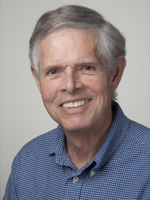 It is very difficult to get a regular research grant from the National Institutes of Health (NIH), and even more difficult to have it renewed over several funding periods. John Buntin’s main NIH grant was funded without interruption for more than 20 years.
It is very difficult to get a regular research grant from the National Institutes of Health (NIH), and even more difficult to have it renewed over several funding periods. John Buntin’s main NIH grant was funded without interruption for more than 20 years.
Perhaps most striking, however, is that he received an NIH Merit Award from 1989-2000, which places him in the very top group of NIH investigators.
Buntin has established himself as an international authority on the actions of the hormone prolactin on the central nervous system. It is an avenue of research that would have discouraged many. How this hormone is able to affect processes that are presumably controlled by the brain has been a big mystery in the field of neuroscience.
Buntin has contributed more to solving this mystery than anyone else, and has advanced understanding of hormone-brain interactions more broadly.
He has made fundamental breakthroughs in understanding prolactin’s central regulation of parental care at the cellular and molecular level. Many of these advances have been made possible by the systematic and insightful way Buntin has developed and characterized a unique avian model to approach these questions.
“While I think John deserves this award based only on his academic accomplishments in neuroendocrinology,” says one nominator, “I think there are also several other reasons he should receive it. One of these is in recognition for his continued tangible contributions to the development of UWM as a serious research university and, more specifically, to the growth of neuroscience on campus.”
Michael F. Fendrich, Director, Center for Addiction and Behavioral Health Research and Professor, Social Work
 As director of the Center for Addiction and Behavioral Health Research (CABHR) and a member of the social work faculty since 2005, Michael Fendrich has brought a number of initiatives and grants to UWM and moved CABHR forward as a national center researching addictions and mental health.
As director of the Center for Addiction and Behavioral Health Research (CABHR) and a member of the social work faculty since 2005, Michael Fendrich has brought a number of initiatives and grants to UWM and moved CABHR forward as a national center researching addictions and mental health.
While developing proposals for cutting-edge research examining substance abuse, Fendrich has become a nationally recognized expert and has served on national panels for federal agencies. In addition, he is on the editorial boards of two major addiction journals and is working on a number of federally funded projects—including an evaluation of Milwaukee’s first drug treatment court.
Other projects include an important linkage to private industry conducting research on a new biomarker for heavy alcohol consumption. “This is an example of a public-private partnership to address a serious issue facing the community and private business,” says Stan Stojkovic, dean of the Helen Bader School of Social Welfare.
In addition to making presentations to community agencies and national entities, Fendrich was pivotal in organizing a national conference held at UWM on high-risk drinking and the importance of a prevention message to students, a collaboration between CABHR and MillerCoors.
Under his leadership, CABHR has expanded its focus to include researchers in nursing, communication, psychology and gerontology. This has led to the creation of an ongoing summer research methods seminar, encouraging research competency among faculty and mentoring relationships on campus.
A milestone for CABHR was the recent establishment of the Community Research Center in Milwaukee’s central city, a move that clearly demonstrates the importance Fendrich and other CABHR researchers place on university-community collaboration.
Marleen C. Pugach, Professor, Curriculum & Instruction
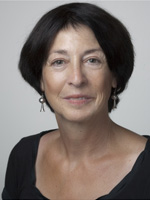 The faculty of the Department of Curriculum & Instruction unanimously nominated Marleen Pugach for the Senior Faculty Award.
The faculty of the Department of Curriculum & Instruction unanimously nominated Marleen Pugach for the Senior Faculty Award.
“Dr. Pugach is one of the most respected scholars, nationally and internationally, in the area of collaboration between general and special educators,” wrote colleague Linda Post, associate professor of education. “Her advocacy for models of inclusion for special education students is a consistent theme throughout her work.”
Pugach, who joined UWM in 1986, has focused her research and work on ways of helping children with special needs learn in the least restrictive environment. Pugach’s research and writing continues to have a tremendous impact on teacher education, generally, and on special education, wrote colleague Linda Blanton, professor at Florida International University.
Her research and writing have focused on ways to help teachers integrate children with special needs into “regular” classrooms, looking at such topics as collaboration among general and special education teachers, team teaching and preparation of special education teachers in content areas.
Her work has been recognized nationally with the American Association of Colleges for Teacher Education’s (AACTE) Margaret B. Lindsey Award for Distinguished Research in Teacher Education and the TED/Merrill Award from the Teacher Education Division of the Council for Exceptional Children.
Pugach has been a visiting scholar at the University of Otago in New Zealand and at Arizona State University. She received a Fulbright for work and research as a senior specialist at the University of Alberta.
Most recently, she and Blanton have been working with the AACTE and the Council of Chief State School Officers to study collaborative programs in general and special education. From that work, they have developed an action guide for policy makers.
Vladislav V. Yakovlev, Professor, Physics
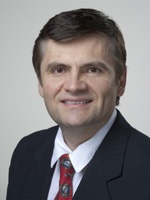 Vladislav Yakovlev has made important advancements in optical spectroscopy both from an engineering and a scientific perspective, and has pioneered the development of techniques that have set the pace in the field of ultrafast optics for 20 years.
Vladislav Yakovlev has made important advancements in optical spectroscopy both from an engineering and a scientific perspective, and has pioneered the development of techniques that have set the pace in the field of ultrafast optics for 20 years.
Yakovlev’s research is focused on applications of advanced optical spectroscopy to biological and medical imaging that can provide immediate knowledge of chemical content.
His discoveries have helped move ultrafast femtosecond lasers from use only as laboratory tools to systems that solve real-world problems—in this case, some of the very first work using femtosecond lasers for surgery.
In fact, says one nominator, “His contributions to the fields of nanoscale optical imaging of sub-cellular structures, protein structural chemistry and biomedical applications of the optical technology are known throughout the world.”
Examples of Yakovlev’s work have been highlighted in the Proceedings of the National Academy of Sciences as well as in the top journals in the field.
In addition, he has developed strong ties to world-renowned collaborators, which allows him to continually link new breakthroughs in spectroscopy to applications in medicine and biology, generating a large number of research proposals. He currently has two active grants from the National Science Foundation, three from the National Institutes of Health and one from the U.S. Department of Defense.
“This brings your institution a very strong applied optics and spectroscopy program,” says one nominator, “and a direct linkage to biomedical device engineering and development.”
2008-2009
Margo J. Anderson, Professor, Department of History
 As the country’s leading scholar on the history of the U.S. Census, Margo Anderson has made distinguished contributions to research in American social science.
As the country’s leading scholar on the history of the U.S. Census, Margo Anderson has made distinguished contributions to research in American social science.
Her research on the past censuses shows how current events have affected or changed the process, and how social prejudices have tainted the count throughout its history.
Anderson has worked tirelessly to explain the significance of the census process to questions of social inequality, both through her many publications, including three books, and by testifying before Congress.
In addition, she has most recently been involved in promoting scholarship on Milwaukee. This work took off in 2004 when she organized a conference on Milwaukee history in conjunction with the meeting of the Urban History Association here.
Her scholarly contributions have been recognized by a variety of professional organizations. She was a member of the National Academy of Sciences’ Panel on Census Requirements for the Year 2000 and Beyond. In addition, she has held fellowships from the National Endowment for the Humanities and at the Woodrow Wilson Center in Washington, D.C.
Margaret Duncan, Professor, Department of Human Movement Sciences
 Margaret Duncan is known nationally and internationally for her research into the sociocultural aspects of sport and physical activity.
Margaret Duncan is known nationally and internationally for her research into the sociocultural aspects of sport and physical activity.
From earlier work on gendered bodies and media portrayals, to work on sport and ability/disability, to more recent work on the social construction of obesity, she has drawn upon the most recent constructs and theoretical orientations in a variety of disciplines.
Her work has spanned the fields of sociology, anthropology, health and kinesiology, psychology, history, cultural studies and gender studies to advance research and professional practice in human movement sciences.
Another noteworthy aspect of Duncan’s research is her desire to share the findings of her work with students. Through mentoring of graduate students across campus departments, she has helped students translate research into professional practice.
Duncan is an Active Fellow of the American Academy of Kinesiology and Physical Education, the most prestigious honorary organization in the U.S. for scholars in kinesiology. Membership is limited to 140 Active Fellows; to be elected, a candidate must demonstrate long-term scholarly productivity at the highest level.
Paul J. Roebber, Professor, Department of Mathematical Sciences
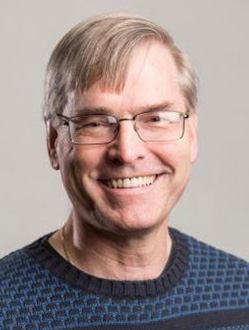 Paul Roebber is regarded as one of the leading forecasting experts in the United States and the world, and his research has affected how future weather is determined today.
Paul Roebber is regarded as one of the leading forecasting experts in the United States and the world, and his research has affected how future weather is determined today.
Roebber’s research has led to an improved method for forecasting snowfall which has recently been adopted as the standard methodology by the National Oceanic and Atmospheric Association’s Hydrometeorological Prediction Center.
In addition, his research group was the first to show that high-resolution weather prediction models can reliably predict the occurrence, mode and timing of thunderstorms within a region 24 to 48 hours in advance.
Roebber also is widely regarded for his teaching expertise and for finding effective ways for his students to be actively involved in research. In the last two years, he created a program in which both undergraduate and graduate students provide targeted forecasts to local businesses. Eight clients, including We Energies, are signed up, and the contracts with these businesses are leading to new ways to support students in atmospheric science.
Research in the Humanities Award (Biennial)
Former Associate Dean for Research Robert A. Jones and his spouse, Mary B. Jones, established the Research in the Humanities Award at the UWM Foundation for the purpose of recognizing outstanding scholarship and research in the Humanities.
In each odd-numbered year, the Office of Research solicits award nominations of faculty members in the Humanities (see below for eligible departments). The faculty member selected for the award is honored at the Fall Awards Ceremony and receive a $1,500 prize.
2023 Recipients
Blain Neufeld, Dept. of Philosophy
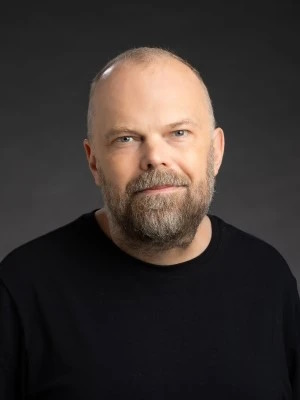 Dr. Blain Neufeld is recognized for his 2022 monograph, Public Reason and Political Autonomy: Realizing the Ideal of a Civic People, an ethical-political examination of Rawlsian theory in the face of peoples’ fractured perception of justice in modern democracy – a work resoundingly celebrated by his peers.
Dr. Blain Neufeld is recognized for his 2022 monograph, Public Reason and Political Autonomy: Realizing the Ideal of a Civic People, an ethical-political examination of Rawlsian theory in the face of peoples’ fractured perception of justice in modern democracy – a work resoundingly celebrated by his peers.
Neufelds’ arguments propose a ‘public reason’ justification for modern political liberalism as opposed to the dominant “respect-based” reasoning, viewed as a breakthrough in the modern theory that consensually endorsed principles are not only compatible with, but indeed enhance autonomy. His position is well-defended; his scholarship meticulous and carefully debated to deliver an opus in the examination of social justice in the modern day.
Nigel Rothfels, Dept. of History
 If Dr. Rothfels had established himself over the last three decades as one of the world’s foremost historians of animals and human-animal relations, his 2021 book, Elephant Trails cements his place there. From a cross-disciplinary perspective, Rothfels shares the history of human-elephant interaction: “Spanning from ancient natural history accounts to colonial ivory hunting, to shifting husbandry practices in the zoo industry, (Trails) offers complex and compelling analysis, particularly on polarizing issues such as the history and future of elephant hunting and captivity”. His work demonstrates the significance of a humanities approach to biological and ecological questions.
If Dr. Rothfels had established himself over the last three decades as one of the world’s foremost historians of animals and human-animal relations, his 2021 book, Elephant Trails cements his place there. From a cross-disciplinary perspective, Rothfels shares the history of human-elephant interaction: “Spanning from ancient natural history accounts to colonial ivory hunting, to shifting husbandry practices in the zoo industry, (Trails) offers complex and compelling analysis, particularly on polarizing issues such as the history and future of elephant hunting and captivity”. His work demonstrates the significance of a humanities approach to biological and ecological questions.
Dr. Rothfels is recognized for this work of top-tier academic excellence. “His combination of extensive archival work and tenacious field research in zoos and museums enables him to offer the layered storytelling and nuanced analysis that is often lacking in animal history.”
Previous Recipients
2021
Elana Levine, Department of English
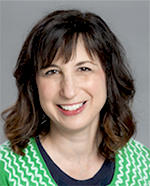 Since the debut of These Are My Children in 1949, the daytime television soap opera has been foundational to the history of television as an economic, creative, technological, social, and cultural institution. In her 2020 book, Her Stories: Daytime Soap Opera and US Television History, Elana Levine draws on archival research and critical analysis to provide an in-depth history of the daytime television soap opera as a uniquely gendered cultural form and a central force in the economic and social influence of network television.
Since the debut of These Are My Children in 1949, the daytime television soap opera has been foundational to the history of television as an economic, creative, technological, social, and cultural institution. In her 2020 book, Her Stories: Daytime Soap Opera and US Television History, Elana Levine draws on archival research and critical analysis to provide an in-depth history of the daytime television soap opera as a uniquely gendered cultural form and a central force in the economic and social influence of network television.
A Glasgow University fellow calls it “crucial reading for media studies scholars and anyone interested in the social and cultural history of the United States in the twentieth century.” A UW-Madison professor considers it “one of the best books to be published in the field of television studies in the past decade—the sort of book most scholars aspire to complete during the course of a career.”
Mark Netzloff, Department of English
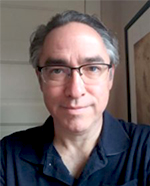 Mark Netzloff’s book, Agents Beyond the State: The Writings of English Travelers, Soldiers, and Diplomats in Early Modern Europe, provides the first book-length study of the connections between literary writing and the emergence of the English state in the early modern period.
Mark Netzloff’s book, Agents Beyond the State: The Writings of English Travelers, Soldiers, and Diplomats in Early Modern Europe, provides the first book-length study of the connections between literary writing and the emergence of the English state in the early modern period.
In the book, published in 2020 by Oxford University Press, Netzloff argues that the early modern state was defined not through the elaboration of theoretical models of sovereignty, but rather as an effect of the literary and social practices of its extraterritorial representatives. Focusing on four groups of agents—travelers and intelligence agents, Catholic exiles, mercenaries, and diplomats—Agents Beyond the State examines their material practices of writing, networks of association, modes of affect and sociability, and formulations of agency and critique.
A professor at the University of Minnesota writes that the book “ will seal his reputation as one of the top scholars working in the field.”
2019
Jocelyn Szczepaniak-Gillece, Assistant Professor, English
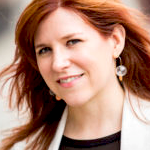 Between the 1920s and 1960s, U.S. movie theaters evolved from massive, ornate palaces to intimate, streamlined venues that encouraged immersive movie watching. In her 2018 book, The Optical Vacuum: Spectatorship and Modernized American Theater Architecture, UWM Assistant Professor Jocelyn Szczepaniak-Gillece follows this transformation through the work of its champion, New York architect Benjamin Schlanger, whose theory of neutralized theaters informed his minimalist, modern designs.
Between the 1920s and 1960s, U.S. movie theaters evolved from massive, ornate palaces to intimate, streamlined venues that encouraged immersive movie watching. In her 2018 book, The Optical Vacuum: Spectatorship and Modernized American Theater Architecture, UWM Assistant Professor Jocelyn Szczepaniak-Gillece follows this transformation through the work of its champion, New York architect Benjamin Schlanger, whose theory of neutralized theaters informed his minimalist, modern designs.
In its close examination of Schlanger’s work and of changing patterns of spectatorship, The Optical Vacuum reveals that the essence of film viewing lies not only in the text, but in the spaces where movies are shown. She explores topics often ignored in film and media studies, such as seat construction and placement, wall decoration, sight lines, lighting, curtains, and screen position.
Richard Grusin, UWM Distinguished Professor and director of the Center for 21st Century Studies, writes of Szczepaniak-Gillece, “She has the amazing ability of turning what might seem to be rather dry archival material into interesting, even at times gripping, prose. Her prose is simultaneously erudite and funny.”
2017
David DiValerio, Associate Professor, History
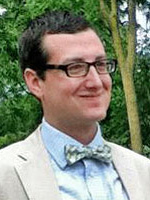 David DiValerio’s book, The Holy Madmen of Tibet, is a study of a peculiar and surprising strain of Buddhism that also offers a unique lens on the study of religion. DiValerio’s subjects are yogins who burst forth from their 15th century monastic lives to shock their communities with bizarre behavior quite at odds with the common view of Buddhist monks as serene contemplatives.
David DiValerio’s book, The Holy Madmen of Tibet, is a study of a peculiar and surprising strain of Buddhism that also offers a unique lens on the study of religion. DiValerio’s subjects are yogins who burst forth from their 15th century monastic lives to shock their communities with bizarre behavior quite at odds with the common view of Buddhist monks as serene contemplatives.
One contemporary account describes a yogin whose “naked body was rubbed with ashes from a human corpse, daubed with blood, and smeared with fat. He wore the intestines of someone who had died as a necklace…”
DiValerio places this behavior in the context of political, religious and cultural battles taking place in Tibet when these yogins flourished. His translations of biographies from the period give a unique authority to his critical examination of the lives of these Tibetan “madmen.”
Andrew Quintman, associate professor of religious studies at Yale University, called the book “a major and lasting contribution to the study of Tibetan religious and cultural history.”
Christine Evans, Associate Professor, History
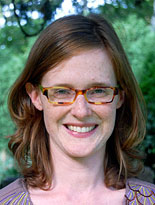 An avid scholar who digs deeply into texts others might overlook and whose writing shows clarity and liveliness whether on the op-ed pages of the New York Times or in a richly researched account of Soviet-era television, Christine Evans is the 2017 recipient of the Robert A. Jones and Mary B. Jones Award for Research in the Humanities.
An avid scholar who digs deeply into texts others might overlook and whose writing shows clarity and liveliness whether on the op-ed pages of the New York Times or in a richly researched account of Soviet-era television, Christine Evans is the 2017 recipient of the Robert A. Jones and Mary B. Jones Award for Research in the Humanities.
A history professor and coordinator of the Russian and Eastern European Studies Certificate Program, Evans also is author of “Between Truth and Time: A History of Soviet Central Television” (Yale University Press, 2016).
Rigorous scholarship is one indicator of the book’s prominence: oral histories are referenced, and popular Soviet television programs “Seventeen Moments of Spring” and KVN are accounted for and compared to similar genres of television across Eastern and Western Europe.
“I found (the book) one of the richest and most dependable resources on socialist mass culture,” writes one reader and nominator.
The creative, engaging style and structure of Evans’ book also earns praise from readers and scholars.
“Deploying an impressive industry, intelligence and imagination, [Evans] takes the reader into the interior of a world largely unstudied,” writes a fellow historian. “By mining a variety of archives, she has come up with a work of profound originality that is a major contribution to the study of the postwar Soviet Union.”
2015
Joseph Peschio, Associate Professor, Russian
 In “The Poetics of Impudence and Intimacy in the Age of Pushkin,” Peschio explores the provocative and irreverent literary styles that proliferated during the Golden Age of Russian literature of the early 19th century. Collectively referred to as literary shalosti, these genres—including the friendly verse epistle, the burlesque, the epigram, the comic narrative poem and the prose parody—challenged existing literary institutions and a Russian regime vilified for the heightened state scrutiny into private life and its harsh suppression of the Decembrist uprising.
In “The Poetics of Impudence and Intimacy in the Age of Pushkin,” Peschio explores the provocative and irreverent literary styles that proliferated during the Golden Age of Russian literature of the early 19th century. Collectively referred to as literary shalosti, these genres—including the friendly verse epistle, the burlesque, the epigram, the comic narrative poem and the prose parody—challenged existing literary institutions and a Russian regime vilified for the heightened state scrutiny into private life and its harsh suppression of the Decembrist uprising.
Peschio’s book is the first comprehensive history of Russian shalosti—whose literary manifestations included obscenities in poems, impenetrably obscure allusions and literary inside jokes. He argues that the formal innovations fueled by these rogue works posed a greater threat to the Russian government and established literary traditions than more overt criticisms or conventional forms of discourse.
William Mills Todd III, the Harry Tuchman Levin Professor of Literature and professor of comparative literature at Harvard University, writes, “Peschio brings conceptual power, scholarly rigor, and an appropriately light touch to this important but elusive topic. An absolutely indispensable study of the creative irreverence of the Pushkin period.”
“The Poetics of Impudence and Intimacy in the Age of Pushkin” was published by the University of Wisconsin Press as part of its prestigious Publications of the Wisconsin Center for Pushkin Studies series. The book was a 2014 finalist for the Best Book in Literary/Cultural Studies Prize sponsored by American Association of Teachers of Slavic and East European Languages.
Tami Williams, Associate Professor, Film Studies & English
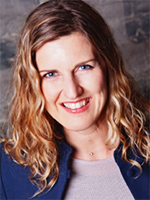 The 2014 publication of “Germaine Dulac: A Cinema of Sensations” established Williams as the world’s leading authority on the first feminist filmmaker.
The 2014 publication of “Germaine Dulac: A Cinema of Sensations” established Williams as the world’s leading authority on the first feminist filmmaker.
The first full-length historical study and critical biography of Dulac is the product of an ambitious research undertaking that critics have called “astounding.” Williams draws upon a massive amount of primary source material, including Dulac’s personal papers, production files and archival film prints.
Published as part of the Women and Film History International series from the University of Illinois Press, “Cinema of Sensations” explores the artistic and sociopolitical currents that shaped Dulac’s approach to cinema and also examines the groundbreaking techniques and strategies she used to critique conservative notions of gender and sexuality.
Sandy Flitterman-Lewis, associate professor of English at Rutgers University, calls the book “a monumental, extraordinarily well-researched, highly readable portrait of one of the most significant figures in the history of cinema.” She concludes, “There is, quite literally, no other book like it anywhere. . . It is the first book of its kind and will always be the best.”
Williams’ work on early French cinema and avant-garde culture has appeared in international journals and anthologies in English, French, German, Greek, Italian and Slovenian. She serves as secretary of Domitor, the international association for the study of early cinema. At UWM Williams has been a CIE Global Studies Fellow and Center for 21st Century Studies fellow, and has received seven travel awards from CIE and the UWM Office of Research.
2013
Tanya Tiffany, Associate Professor, Art History
 Tanya Tiffany’s 2012 book, Diego Velázquez’s Early Paintings and the Culture of Seventeenth-Century Seville, provides the most in-depth look to date into the early career of one of Western art’s greatest artists.
Tanya Tiffany’s 2012 book, Diego Velázquez’s Early Paintings and the Culture of Seventeenth-Century Seville, provides the most in-depth look to date into the early career of one of Western art’s greatest artists.
By considering his work within the context of Seville’s social, political and religious environment of the day, Tiffany reveals the issues that many of Velázquez’s paintings address, such as women’s place in society, the nature of artistic creativity, the role of religion in everyday life, and the incorporation of racial minorities into Christianity.
Laura Bass of Brown University describes Tiffany as “one of today’s most important scholars of Velázquez.” Citing its “rigorous research” of a wide variety of textual sources and “meticulous attention to pictorial composition,” Bass writes that Tiffany’s book will be “indispensable to students and scholars not only of art history but also of early modern Spanish culture more broadly.”
Since coming to UWM in 2004, Tiffany’s university awards include travel grants from College of Letters and Science, Center for International Education, and Graduate School, a Center for 21st Century Studies Fellowship, and a Graduate School Research Committee Award. She also earned a UW System Institute on Race and Ethnicity Research Support Grant and a fellowship from UW-Madison’s Institute for Research in the Humanities.
Barrett Kalter, Associate Professor, English
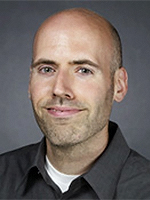 In Modern Antiques: The Material Past in England, 1660-1780, Barrett Kalter examines the influence of antiquarianism on English literature, architecture, and interior design during the long eighteenth century.
In Modern Antiques: The Material Past in England, 1660-1780, Barrett Kalter examines the influence of antiquarianism on English literature, architecture, and interior design during the long eighteenth century.
Inspired by the history that scholars and collectors had recovered in such concrete detail, artists and writers combined fact with imagination, and old with new, to create works ranging from medieval-style wallpaper to the Gothic novel. These “modern antiques” were valued as exotic alternatives to the present, yet they also embody the changes that define the era, such as the legitimization of empirical knowledge, the spread of consumer culture, and the rise of British nationalism. Kalter argues that the proliferation of “modern antiques” in the period reveals modernity’s paradoxical emergence out of encounters with the past.
Robert Folkenflik, professor emeritus of English at the University of California-Irvine, calls Kalter’s work “an original and necessary book for eighteenth-century studies” whose chapters “give us a rigorously considered sense of the historical imagination of the eighteenth century.”
Since coming to UWM in 2004, Kalter’s university awards include travel grants from the Center for International Education and the Graduate School, and a Center for 21st Century Studies Fellowship.
Kalter’s works in progress include a monograph on food and eighteenth-century literature.
2011
Jasmine Alinder, Associate Professor, History
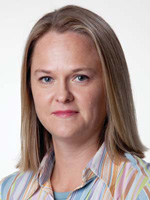 Jasmine Alinder’s 2009 book, Moving Images: Photography and the Japanese American Incarceration, examines the ways in which photographs of the Japanese American incarceration were made, exhibited and seen from multiple perspectives—those of photographers, subjects and exhibitors—both then and later. As such, it is a history of how photographic meaning is not given but constructed—often subject to deeply ideological constraints.
Jasmine Alinder’s 2009 book, Moving Images: Photography and the Japanese American Incarceration, examines the ways in which photographs of the Japanese American incarceration were made, exhibited and seen from multiple perspectives—those of photographers, subjects and exhibitors—both then and later. As such, it is a history of how photographic meaning is not given but constructed—often subject to deeply ideological constraints.
Published by University of Illinois Press, Alinder’s book has established her as one of the most important and influential scholars in the burgeoning areas of public history, visual culture and museum studies. Moving Images has received high critical acclaim, praising the author’s sophistication and imagination in developing a history of documentary photography that displays the complex interrelations between visual and ideological contexts.
John Howard of King’s College London writes: “[T]his book is a credit to the press, the series editor and the author. Alinder’s keen insights will continue to inform and enhance the field for years to come.”
Sukanya Banerjee, Associate Professor, English
 Sukanya Banerjee’s 2010 book, Becoming Imperial Citizens: Indians in the Late Victorian Empire, combines Victorian studies, postcolonial history and literary analysis with meticulous archival research to investigate the ways in which Indians fashioned conceptions of themselves as citizens in the British Empire, more than half a century before the founding of their own nation-state.
Sukanya Banerjee’s 2010 book, Becoming Imperial Citizens: Indians in the Late Victorian Empire, combines Victorian studies, postcolonial history and literary analysis with meticulous archival research to investigate the ways in which Indians fashioned conceptions of themselves as citizens in the British Empire, more than half a century before the founding of their own nation-state.
Published by Duke University Press, the book provides a new transnational and extralegal framework for understanding the colonial subject and the global reach and complexity of Indian society in the late Victorian period.
Calling it a “virtuoso performance,” Antoinette Burton of the University of Illinois at Urbana-Champaign writes that Becoming Imperial Citizens “is indispensable reading for those who want to understand the timing of nationalisms sponsored by colonial modernity.”
Banerjee’s book was a culmination of research that included a UWM Center for 21st Century Studies fellowship in 2003-04. In addition to many external honors and awards, other UWM awards include a fellowship at the Center for Women’s Studies, two Graduate School Research Committee Awards, an NEH summer research award and four UWM travel grants.
2009
William Bristow, Associate Professor, Philosophy
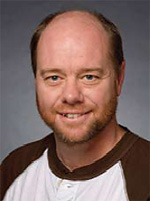 Georg Wilhelm Friedrich Hegel was a 19th century German idealist philosopher whose ideas and concepts, including dialectic, absolute idealism, ethical life and sublation, challenged many ideas of the prominent German idealist Immanuel Kant.
Georg Wilhelm Friedrich Hegel was a 19th century German idealist philosopher whose ideas and concepts, including dialectic, absolute idealism, ethical life and sublation, challenged many ideas of the prominent German idealist Immanuel Kant.
Scholars have long struggled to fully understand Hegel’s criticisms of Kant, and William Bristow’s 2007 book, Hegel and the Transformation of Philosophical Critique, has been called “the most successful account so far” of Hegel’s arguments.
Published by Oxford University Press, the world’s leading publisher in philosophy, the book was the subject of the “Author Meets Critics” session of the 2009 American Philosophical Association meeting, the profession’s most distinguished venue for discussion of new books. It was also nominated for the APA’s Annual Book Prize.
In a review, Paul Franks of the University of Toronto calls Bristow’s book “a brilliant defense of Hegel, indispensable reading for anyone interested in Kant and Hegel,” adding that, “It also presents a breathtaking vision of epistemology.”
Aims McGuinness, Associate Professor, History
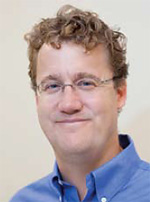 With the writing of Path of Empire: Panama and the California Gold Rush, Aims McGuinness has confirmed his place in the front ranks of researchers in the burgeoning field of global history.
With the writing of Path of Empire: Panama and the California Gold Rush, Aims McGuinness has confirmed his place in the front ranks of researchers in the burgeoning field of global history.
This assessment by UWM History Department Chair Neal Pease is just one voice in the chorus of accolades the book has received since its 2008 publication.
Path of Empire describes the Gold Rush’s impact on Panama, an important route for U.S. westward expansion even before the building of the canal in 1914. Robert Buffington, professor at the University of Colorado at Boulder, calls Path of Empire “a pioneering work of transnational history that significantly revises our understanding of this hemisphere-changing event.”
McGuinness conducted research on Panama and the United States as a Center for 21st Century Studies fellow in 2003-04, and delivered the 2004 Fromkin Lecture, which focused on Milwaukee’s socialist history.
2007
John Koethe, Professor, Philosophy
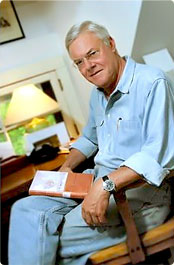 Perhaps best known as a poet—author of seven books of poetry and recipient of numerous awards—UWM Distinguished Professor John Koethe reminds us of his importance as a philosopher with his 2005 book, Scepticism, Knowledge, and Forms of Reasoning.
Perhaps best known as a poet—author of seven books of poetry and recipient of numerous awards—UWM Distinguished Professor John Koethe reminds us of his importance as a philosopher with his 2005 book, Scepticism, Knowledge, and Forms of Reasoning.
Described by UWM colleague Edward Hinchman as “a groundbreaking contribution to several issues in epistemology, metaphysics, and the philosophy of logic,” the book examines skeptical arguments, a matter on which there is no consensus among contemporary philosophers.
How do you respond to a philosophical argument that contradicts your common-sense knowledge, such as an assertion that you cannot know that you are at this very moment sitting at a computer? Rather than denying the premises of such arguments or simply declaring them invalid, Koethe delves into what such arguments reveal about the nature of reasoning itself.
Ohio State University philosophy professor Robert Kraut calls Koethe’s book “an excellent study of epistemological skepticism—one of the most intriguing discussions of the topic to appear in many years” and “a wonderful piece of systematic philosophy.” Scepticism, Knowledge, and Forms of Reasoning was preceded by Koethe’s 1996 book The Continuity of Wittgenstein’s Thought and several important scholarly articles, which include “And They Ain’t Outside the Head Either” in 1992, “The Stability of Reference over Time” in 1982, and “Putnam’s Argument Against Realism” in 1979.Koethe has taught and written at UWM since 1973, when he received his Ph.D. from Harvard University.
Outstanding Creative Research Achievement Award (Biennial)
The Outstanding Creative Research Achievement Award recognizes a UWM faculty member for achieving significant artistic or creative contribution to their field or discipline within the past three years. The recipient will receive $1,500 and be honored at the Fall Awards ceremony. The award is offered in even-numbered years, in rotation with the Research in the Humanities Award.
2022 Recipients
Jessica Meuninck-Ganger, Department of Art & Design
 Jessica Meuninck-Ganger is recognized by her department as an exemplary artist, scholar, and teacher, noting her unceasing willingness to participate and excel as Head of Print & Narrative forms in the Peck School of the Arts. Meuninck-Granger has proudly presented two solo exhibitions in as many years as well as curating another “eerily prescient” national exhibition titled Aesthetics of Loss at the Ukrainian Institute of Contemporary Art.
Jessica Meuninck-Ganger is recognized by her department as an exemplary artist, scholar, and teacher, noting her unceasing willingness to participate and excel as Head of Print & Narrative forms in the Peck School of the Arts. Meuninck-Granger has proudly presented two solo exhibitions in as many years as well as curating another “eerily prescient” national exhibition titled Aesthetics of Loss at the Ukrainian Institute of Contemporary Art.
Professor Meuninck-Granger’s research is characterized as community-engaged and includes a public print workshop / creative laboratory designed to link print media, art education, and social engagement, as well as several past community-involved workshops and collaborative spaces. Notably, Meuninck-Granger worked as part of a team that secured $2.8 million in NSF funding for her project, WaterMarks: an Art/Science Framework for Community Engaged Learning and Environmental Stewardship.
Sheila Feay-Shaw, Department of Music
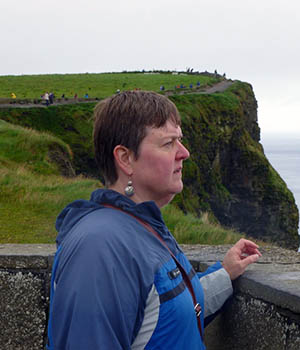 Sheila Feay-Shaw’s scholarship extends beyond digital humanities to explore the vital task of transcribing traditional Ojibwe Native American songs from recordings to musical staff notation. This daunting task involves collaboration and immersion in the culture of the Ojibwe people and Anishinaabe language. Important in this undertaking is a sensitivity to cadence and rhythm, inflection, and intrinsic musical qualities of the language itself.
Sheila Feay-Shaw’s scholarship extends beyond digital humanities to explore the vital task of transcribing traditional Ojibwe Native American songs from recordings to musical staff notation. This daunting task involves collaboration and immersion in the culture of the Ojibwe people and Anishinaabe language. Important in this undertaking is a sensitivity to cadence and rhythm, inflection, and intrinsic musical qualities of the language itself.
Dr. Feay-Shaw’s long-term research in multicultural education utilizes music as a vector to understanding cultures, and has included collaboration with the English Department, local Native American communities, and local high schools to disseminate these traditional songs usually passed-down through group singing, now transcribed for posterity.
Previous Recipients
2020
Lisa Moline, associate professor, Department of Art & Design
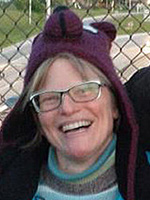 For more than 20 years, Moline has focused her creative research on the complex relationship—sometimes complementary, sometimes conflicting—between humans and the natural world. This involves an ongoing investigation of habitat, and explorations of where nature resides with increasing urbanization and globalization.
For more than 20 years, Moline has focused her creative research on the complex relationship—sometimes complementary, sometimes conflicting—between humans and the natural world. This involves an ongoing investigation of habitat, and explorations of where nature resides with increasing urbanization and globalization.
Her work encompasses many forms, from intimate prints to large-scale installations, from video and audio environments to activist interventions.
Moline’s most recent ongoing project is the Overpass Light Brigade, an episodic performance in contested zones of public space, and a navigation of the tactics of visibility. Since its formation in 2011, the brigade has engaged in more than 400 actions, reached millions on social media, inspired numerous national and international Light Brigade chapters, and become an official tactic of political engagement.
Her work has been exhibited in the Brooklyn Museum, the Milwaukee Art Museum, the California Academy of Sciences, the Field Museum, Science Gallery (Trinity College, Dublin) and Eyebeam gallery (New York City). Her videos have been screened at London’s Cinema Museum and other international venues. Her performance-based activist projects have been featured in national and international news media.
2018
Chris Cornelius, Associate Professor, Architecture
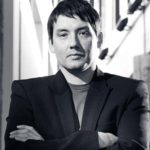 Chris Cornelius, an enrolled member of the Oneida Nation of Wisconsin, focuses his research and practice on the architectural translation of Native American culture.
Chris Cornelius, an enrolled member of the Oneida Nation of Wisconsin, focuses his research and practice on the architectural translation of Native American culture.
Cornelius is widely acclaimed for his drawings, as evidenced by awards from the prestigious KRob Architectural Delineation Competition, the American Society of Architectural Illustrators, and the American Institute of Architects, whose 2009 Design Excellence Award recognized his work as collaborating designer of Indian Community School of Milwaukee. Cornelius also earned the J. Irwin and Xenia S. Miller Prize, which recognizes international leaders in their fields who bring unique perspectives in connecting people to place and community. His drawing “Wiikiaami”—designed as a gathering place and to mark the autumnal equinox—was built in 2017 outside the First Christian Church in Columbus, Indiana.
Cornelius has also designed several buildings at the Oneida Nation near Green Bay.
As Karl Wallick, associate professor and chair of the Department of Architecture, points out, “This drawing research has crossed over into the realm of physical construction where his ideas are being tested in new scales and dimensions.”
Kimberly Cosier, Professor, Art And Design
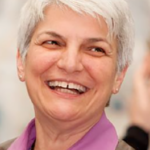 Kim Cosier’s research addresses the interconnected issues of anti-racist and anti-biased teacher education, urban education, alternative education for at-risk youth and underserved populations, and art and education for social justice.
Kim Cosier’s research addresses the interconnected issues of anti-racist and anti-biased teacher education, urban education, alternative education for at-risk youth and underserved populations, and art and education for social justice.
Programs she has established include ArtsECO, which partners with nonprofit arts organizations and schools to develop teachers as change-makers; the Milwaukee Visionaries Project, an award-winning media literacy, video, and animation production project for middle and high school students in Milwaukee; and the Kenilworth Gallery Community Engagement Initiative, an arts-based community engagement laboratory in the Kenilworth Square East gallery.
Professor and chair of the Department of Art & Design Kyoung Ae Cho observes, “These programs have been … building the reputation of the Peck School as one that is committed to arts and social justice through service and art-making within the community.”Cosier’s work is supported by grants from such organizations as the Wisconsin Arts Board, Margaret A. Cargill Philanthropies, Greater Milwaukee Foundation Nohl Fund, and Milwaukee Public Schools Arts and Humanities Partnership. She also co-edited the 2016 book Rethinking Sexism, Gender, and Sexuality.